The Space Generation Advisory Council is pleased to have another fantastic line-up of international speakers for the 2019 Space Generation Congress. These will be announced soon. This page will be updated with more details as they become available, so check back often.
Working Groups Speakers
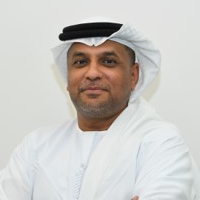
Dr. Khaled Al Hashmi
Director of Space Missions, Science and Technology,
United Arab Emirates Space Agency
Currently working as Director of Space Missions, Science and Technology and Chief Technology Officer at the UAE Space Agency. Spearheading the program management of the UAE Mars Mission “The Hope” project, directing the development and execution of the national space mission/satellite programs and the Space Science & Technology and Innovation roadmap. Assigned currently as Director for the National Space Science and Technology Centre in UAE University to support the development of space R&D and satellite build activities.
Successfully led several transformational change initiatives an supported establishment of two new government entities. Also spearheaded development and organisational projects, governing the alignment of mandates with policies, people, processes & systems in a government entity in Abu Dhabi in his role as Executive Director of Strategy, Policy and Business Excellence. He held several roles in senior management positions that demanding critical business transformation as Chief Operating Officer, Executive Director, and Director at various Space, Aerospace, Oil & Gas industries, government administration and state-owned enterprises.
Earned in 2018 a DBA from University of Manchester, in 2011 graduated from Harvard Business School–General Management. His first Degree was a BSc in Aerospace Engineering,1991, from Saint Louise University, USA, followed by an MSc in Thermal Power & Fluids Engineering, 1997, from the University of Manchester, UK.
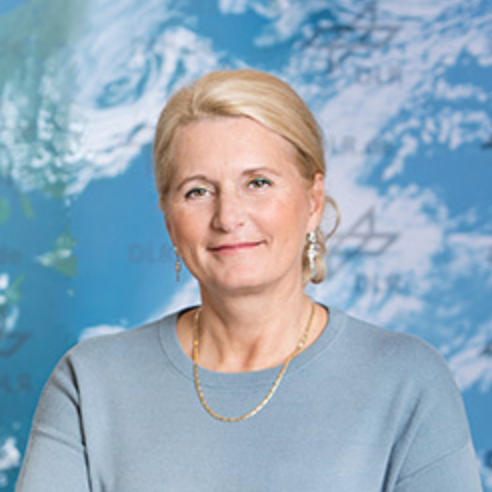
Pascale Ehrenfreund
Chairman
German Aerospace Center (DLR)
Pascale Ehrenfreund is the Chair of the Executive Board of the German Aerospace Center (DLR). The German Aerospace Center is among the largest centers for aerospace, energy and transportation research in Europe with more than 8600 employees at 40 institutes and 20 locations in Germany. Since three decades she contributed as Principal Investigator, Co-Investigator and Teamleader to ESA and NASA astronomy and planetary missions as well as experiments in low Earth orbit
and on the International Space Station. Prior to her appointment to DLR she was the President of the Austrian Science Fund (FWF) from 2013-2015. Pascale Ehrenfreund is also Research Professor of Space Policy and International Affairs at the Space Policy Institute/George Washington University in Washington DC, Chancellor of the International Space University ISU and incoming President of the International Astronautical Federation IAF. Pascale Ehrenfreund holds a Master degree in Molecular Biology, a PhD in Astrophysics, and a Master degree in Management & Leadership. The asteroid “9826 Ehrenfreund 2114 T-3” bears her name.
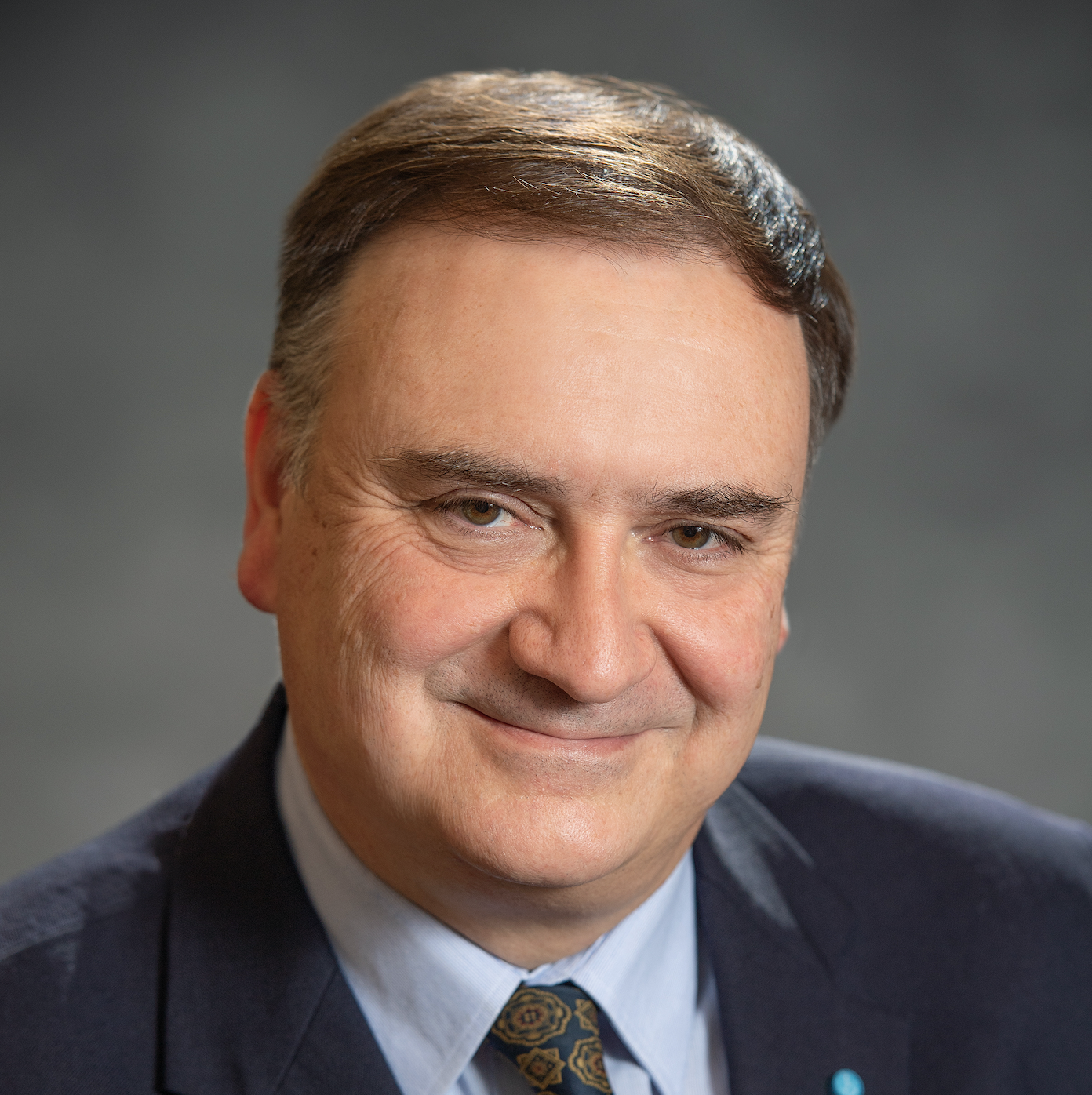
Peter Martinez
Executive Director
Secure World Foundation (SWF)
Peter Martinez is the Executive Director of the Secure World Foundation. He has extensive experience in space policy formulation, space regulation and space diplomacy. He also has extensive experience in capacity building in space science and technology and in workforce development.
Prior to joining SWF, Dr Martinez held the post of Professor of Space Studies at the University of Cape Town. Before this he acquired fifteen years of executive level management experience and associated general management skills gained in the research and development environment of the South African Astronomical Observatory, a National Facility under the South African National Research Foundation, where he served as Acting Director for two extended terms and for shorter periods on numerous other occasions. From 2010 – 2015 he was the Chairman of the South African Council for Space Affairs, the national regulatory authority for space activities in South Africa. From February 2011 to June 2018, he served as the Chairman of the United Nations Committee on the Peaceful Uses of Outer Space (UN COPUOS) Scientific and Technical Subcommittee’s Working Group on the Long-Term Sustainability of Outer Space Activities. From 2012-2013 he was South Africa’s representative on the United Nations Group of Government Experts on transparency and confidence building measures for space activities. He is a member of the International Academy of Astronautics, the International Institute of Space Law and a Fellow of the Royal Astronomical Society. He has authored or co-authored over 200 publications on topics in astronomy, space research, space law and space policy.
Dr. Martinez holds a BSc in Physics and Applied Mathematics, a BSc (Hons) in Materials Engineering, a masters in astronomy with distinction, and a PhD in astronomy, all from the University of Cape Town. He has also attended several executive management courses and the International Space University’s Summer Studies Program, where he developed his interest in space policy and law.
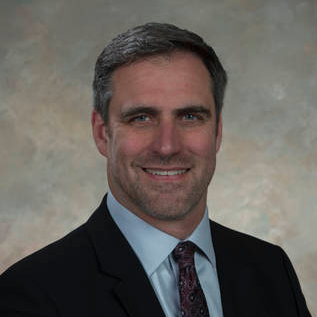
Marshall Smith
Director Human Lunar Exploration Programs
National Aeronautics and Space Administration (NASA)
Marshall Smith directs the formulation and execution of NASA’s human lunar exploration activities—the Gateway, which will be the first deep space outpost in cislunar space, and the Human Landing System—that will establish a sustainable, 21st century human presence on the Moon.
Most recently, Smith served as the Director of Cross-program System Integration (CSI) for the Exploration Systems Development (ESD) Division at NASA Headquarters. In this role, he was responsible for Systems Engineering and Integration (SE&I) of NASA’s next deep-space transportation system—the agency’s crew vehicle, next generation heavy-lift rocket, and supporting ground systems and operations. In parallel, Smith also served as SE&I lead for the Gateway, ensuring that the Gateway systems work seamlessly with the ESD systems while meeting agency objectives to foster both a sustainable presence on, and broad access to, the lunar vicinity through commercial and international partnerships.
Smith works closely with NASA’s human and robotic lunar exploration personnel to identify requirements, concepts of operations, architectures, and to resolve technical issues associated with design, development, and operations of the integrated systems.
Smith has served NASA for more than 30 years, working in flight simulation, aircraft, robotic, and human spaceflight systems. For the past 10 years, he has focused on human spaceflight and served as the Langley Research Center lead for Ares activities, the Flight Test 2 Manager for the Constellation Program, the Ares I-X SE&I Chief and on the Space Launch System formulation team.
Smith received his Bachelor of Science in Electrical and Computer Engineering from the University of Tennessee with a Master of Science in Electrical and Computer Engineering from Virginia Polytechnic Institute and State University. He is the recipient of the NASA Systems Engineering Excellence of the Year Award and the NASA Outstanding Leadership Medal.
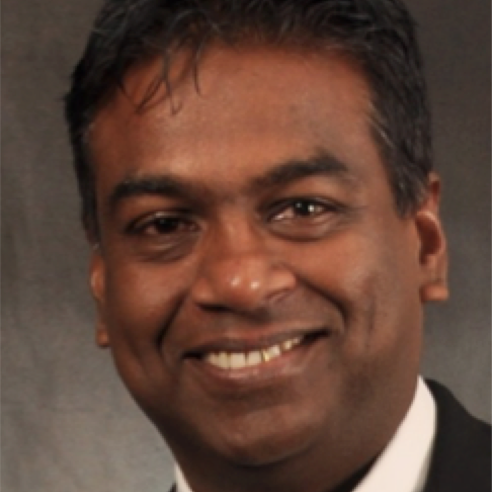
Valanathan (Val) Munsami
Chief Executive Officer
South African National Space Agency (SANSA)
Dr Munsami holds a PhD in Physics from the University of Kwazulu Natal and a Masters degree in Business Leadership from the University of South Africa, a Space Studies Program Diploma from the International Space University, and a Certificate in International Air, Space and Telecommunications Law from the University of Pretoria. In 2002, he joined the Department of Trade and Industry, as Deputy Director, working on issues relating to the non-proliferation of weapons of mass destruction and the space sector. In 2005, he joined the National Research Foundation, as a Manager, where he oversaw the implementation of South Africa’s bilateral science and technology agreements, the management of South Africa’s membership to a number of science and technology multilateral fora, and oversight of the South African chapter of the International Scientific Union (ICSU). In 2007, he joined the Department of Science and Technology as Director (and later promoted to Chief Director) for Space Science and Technology, where he was involved in the development of South Africa’s National Space Strategy and National Space Policy and oversaw the establishment of SANSA. Within the same institution, he was promoted to Deputy Director-General: Research, Development and Innovation, where he was responsible for Space Science, Radio Astronomy, Biotechnology and Health, Hydrogen and Energy, and Innovations Instruments. On winning the bid to co-host the SKA in 2012, he then became the Chief Specialist for Astronomy and African Space Science. In this role, he led the development of South Africa’s Multi-Wavelength Astronomy Strategy and the SKA Readiness Strategy. He also chaired the African Union Space Working Group, which was tasked with the development of the African Space Policy and the African Space Strategy that was approved by the African Union Heads of State in January 2016. As of January 2017, he has been appointed as the Chief Executive Officer (CEO) of SANSA. He is currently a member of the South African Council for Space Affairs (SACSA) and is a Vice President of the International Astronautic Federation (IAF) for Developing Countries and Emerging Nations. He has also been recently inducted as an academician of the International Academy of Astronautics (IAA) and sits on the Advisory Board of the Space Generation Advisory Council (SGAC).
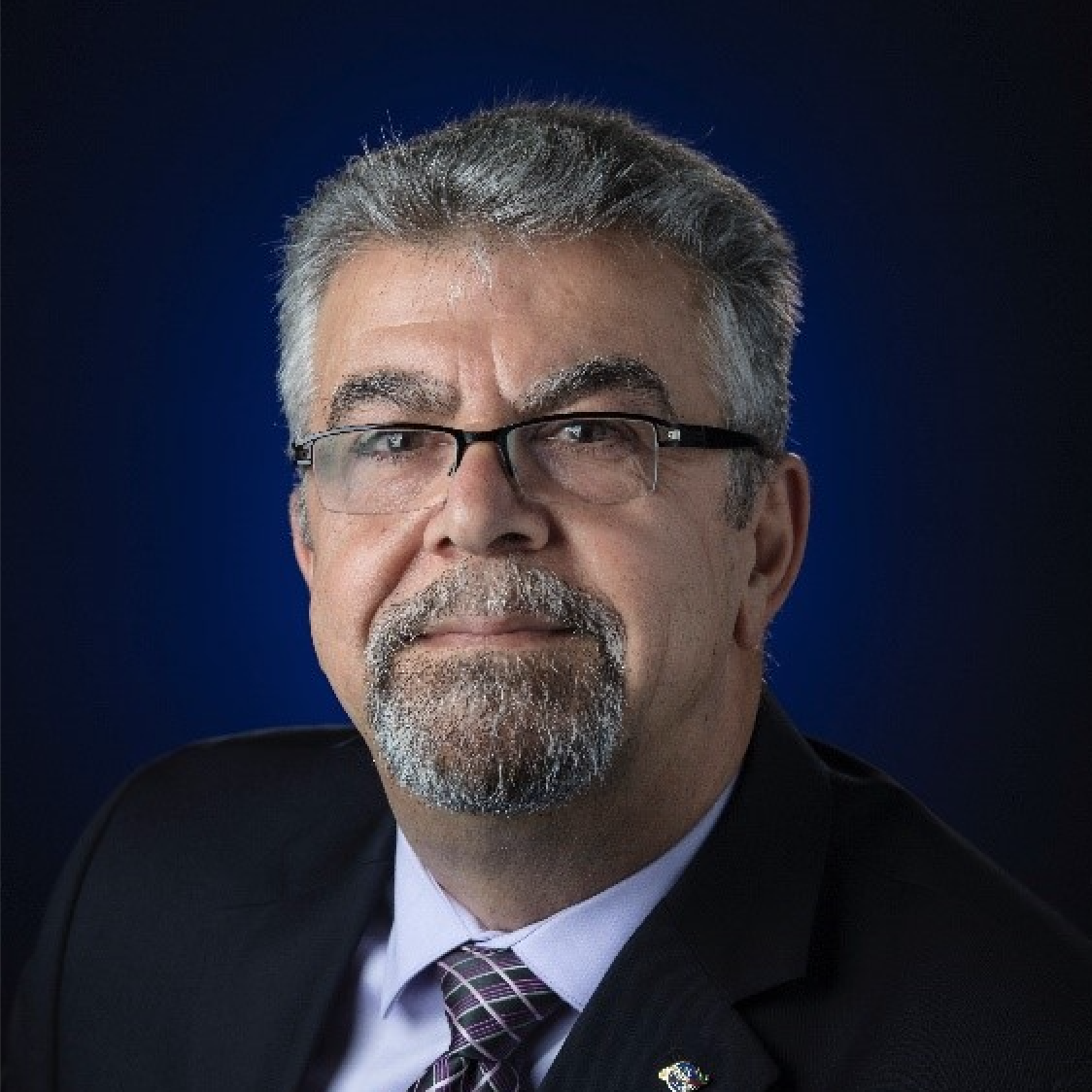
Badri Younes
Deputy Associate Administrator for Space Communications and Navigation (SCaN)
National Aeronautics and Space Administration
Mr. Younes is presently the Deputy Associate Administrator for Space Communications and Navigation (SCaN). He is responsible for NASA’s space communications and navigation infrastructure and services, as well as data standards and spectrum. Mr. Younes manages the SCAN Program Office at NASA Headquarters and oversees all NASA telecommunications and navigation projects and networks, including NASA’s Space Network (SN), Near-earth Network (NEN), and Deep Space Network (DSN). Mr. Younes is also responsible for the development of enabling technologies critical to meeting the Agency’s vision for an integrated SCaN architecture aligned with NASA’s future space exploration needs.
Prior to returning to NASA in 2007, Mr. Younes was the DoD Director for Spectrum Management with responsibility for spectrum policy and strategic planning and implementation for the Department of Defense. Under his leadership, the Department has successfully negotiated major win-win agreements with the FCC, NTIA, and US private sector. He had successfully led the DoD spectrum management organization to become more proactive in addressing RF and spectrum issues. Mr. Younes was instrumental in transforming the management and use of the electromagnetic spectrum within and outside the Department. He played a lead and positive role in developing the Presidential Initiative Recommendations on Spectrum Reform.
Mr. Younes’ experience spans over thirty-five years of leadership in microwave and RF systems engineering and technology. His interpersonal skills and rich linguistic ability have been instrumental in furthering US objectives both nationally and abroad. He has over ten years of involvement in various forums of the International Telecommunications Union (ITU) and has provided direct support to US ambassadors to three World Radio Conferences (WRCs). Prior to joining the Department of Defense, Mr. Younes successfully managed the RF systems engineering and spectrum management for NASA’s Goddard Space Flight Center (GSFC) Space and Ground Networks.
In addition to his many professional individual and team awards, Mr. Younes is also a recipient of the 2005 Meritorious Presidential Rank Award. He is a member of Tau Beta Pi, engineering honor society. He holds a Masters in Electronics Engineering from Catholic University of America and had completed all his PhD requirements except for the dissertation.
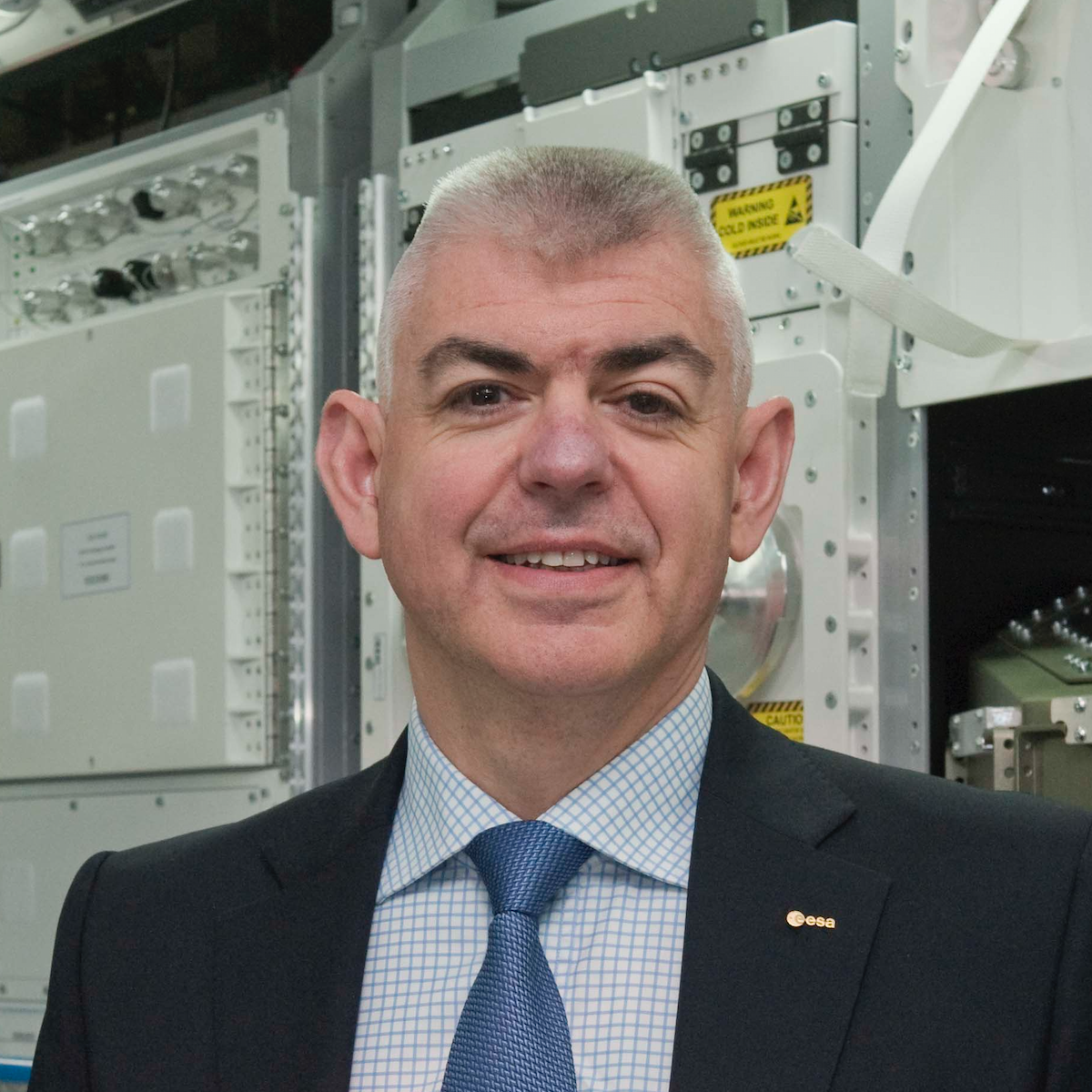
Hugo Marée
Head, Education Office
European Space Agency (ESA)
Hugo Marée, graduated in 1987 from Antwerp’s Maritime Academy and started his professional career as Senior Operations Controller for the ECS and MARECS satellites at ESA’s tracking station in Redu (Belgium).
He then joined in 1992 the Euro Space Centre – a space-themed edutainment facility – in Transinne (Belgium) where he eventually became Director between 1995 and 1999.
In 1999, he joined the Science Programme Coordination and Planning Office at the European Space Agency’s Headquarters in Paris where he administered the Science Programme Communication Service and later served as the Executive Secretary to the Science Programme Committee. He moved in 2005 to ESA’s Education Office (based at ESA/ESTEC in the Netherlands) to lead the Policy and Coordination Unit. He is, since 2011, the Head of ESA’s Education Office; in that capacity, he is in charge of defining the ESA Education Policy and following up its implementation in close coordination and collaboration with partners in the ESA Member States.
Working Groups Subject Matter Experts
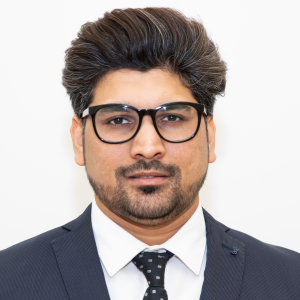
Ahmed Mashood
Satellite Development Engineer
National Space Science and Technology Center(NSSTC), United Arab Emirates University
Eng. Ahmed Mashood is currently working at National Space Science & Technology center (NSSTC) at United Arab Emirates University (UAEU) in Alain, as a Satellite Development Engineer. He has a MS in Nanotechnology & Microsystems from United Kingdom, and B.E in Electronics & Communication Engineering. He leads the Satellite training program in NSSTC. He also supports UAEU by providing hands-on training to school students in the field of embedded systems and smart phone Apps, with the aim of nurturing innovative thinking using STEM based learning approach. Mashood was the recipient of “UAEU Chancellors Innovation Award 2017” for his work on developing Swarm Intelligent Drone System. He is also Project Manager for two R&D projects relating to the development of Satellite On-broad computer Hardware and Embedded software. Mashood is also a philosopher and a futurist. He also has interest in politics and economics, and has huge appetite for knowledge.
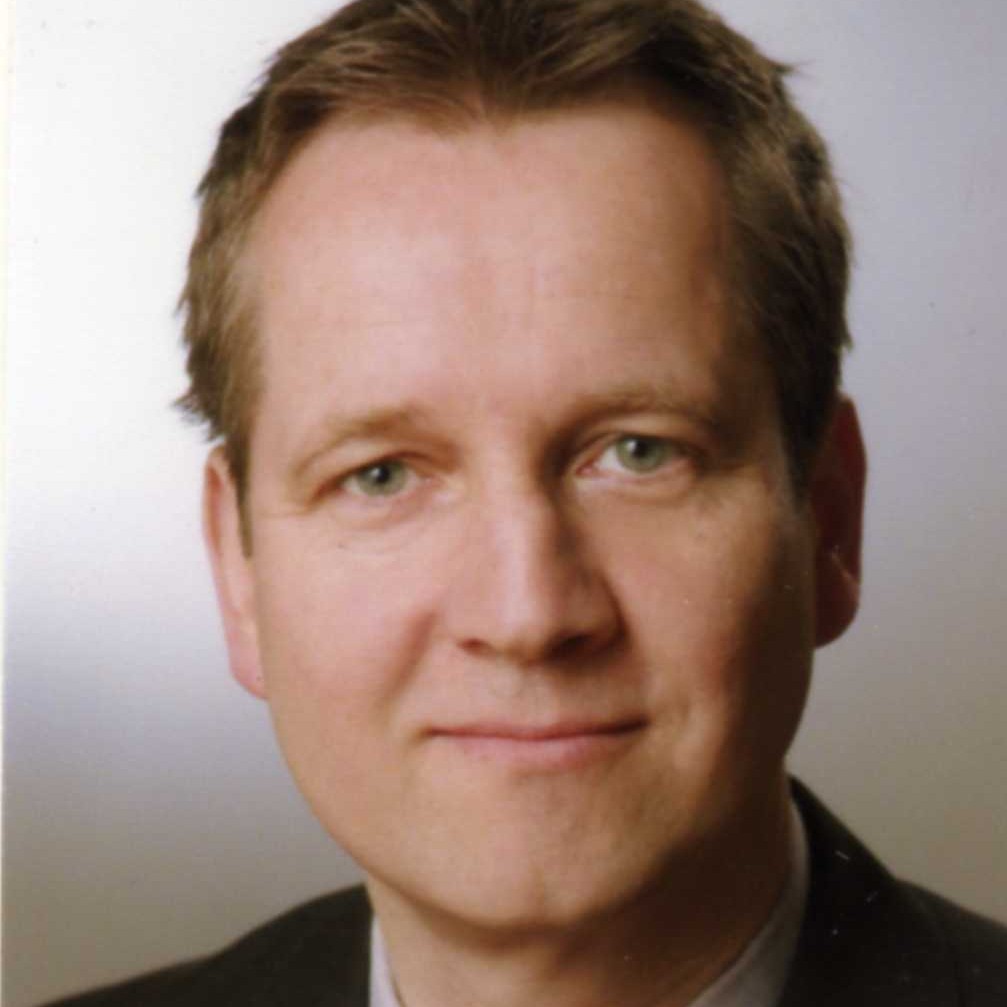
Oliver Romberg
Head of System Analysis Space Segment,
German Aerospace Center (DLR)
Dr. Oliver Romberg studied Mechanical Engineering with specialization in Mechanics, performed his phD at the Institute for Mechanics of the University of Hannover in 1998 and worked since then in the field of Space Technology. In the year 1998 he started in the company OHB System in Bremen, Germany as a Systems Engineer, Project Manager and later as deputy department head. In parallel he gave lectures in Mechanics at the University of Applied Science in Bremen. Since 2007 Dr. Romberg works as head of the DLR department System Analysis Space Segment for the German Aerospace Center. As assistant professor, he gives lectures in Systems and Concurrent Engineering at the University of Bremen.
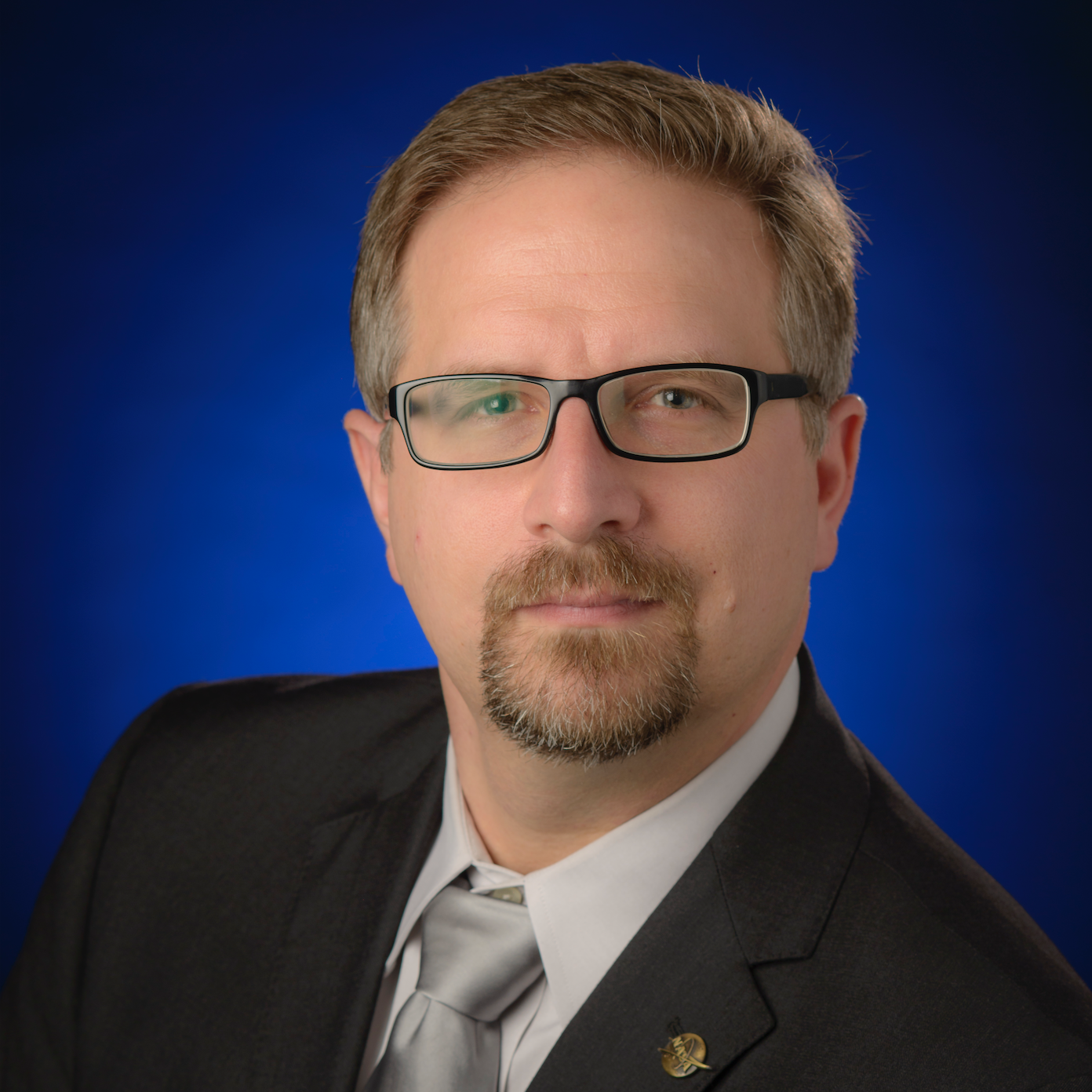
Jonathan Krezel
Integration Manager, Exploration Systems Development
National Aeronautics and Space Administration
Jonathan Krezel is the Integration Manager for Exploration Systems Development (ESD) at NASA Headquarters, and is currently detailed to the Advanced Exploration Systems (AES) office where his is assisting with the startup of the enterprise overseeing the Agency’s Moon to Mars campaign. Prior to these assignments, Jonathan served as the Program Executive for the Space Launch System in ESD, and as the lead for Space Shuttle Transition and Retirement at NASA Headquarters. Since being hired by NASA as a Presidential Management Fellow in 2003, Jonathan has served a number of other roles, primarily as a policy analyst supporting the Space Shuttle office, the Chief Financial Officer, and the Jet Propulsion Laboratory. Jonathan received a bachelor of political science and history from the University of Connecticut in 1996, a masters of public administration from UConn in 2000, and a masters of philosophy in science and technology policy from the George Washington University in 2003.
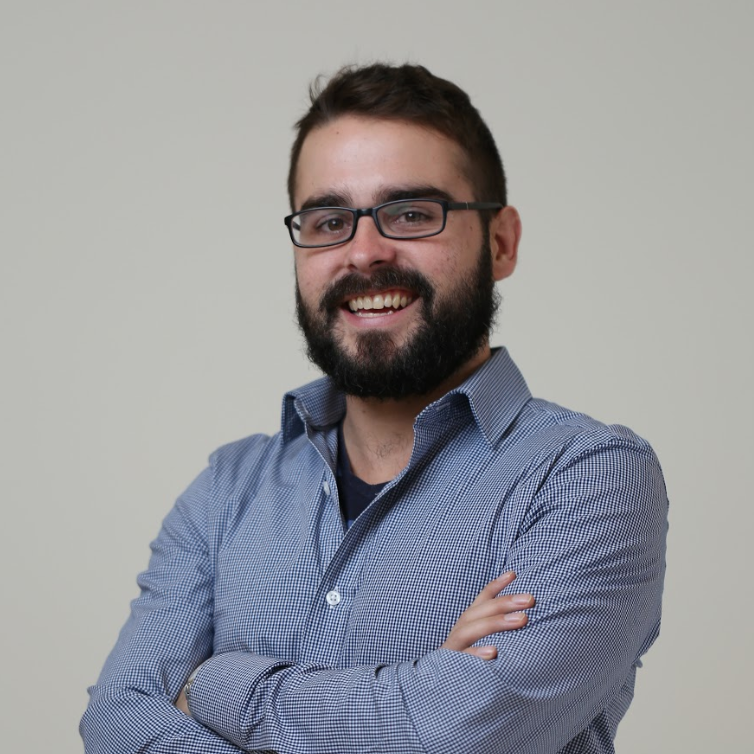
Javier Stober
Research Engineer
MIT Media Lab
Dr. Javier Stober is a Research Engineer in the Space Enabled Research Group. In that role, he leads the development and operations of the satellite laboratory and fosters collaborations with partnering organizations. Javier earned Ph.D. and M.S. degrees in Aeronautics and Astronautics from Stanford University, researching novel propellants in the area of experimental hybrid rocket propulsion, as well as B.S. degrees in Mechanical and Aerospace Engineering from the University of Florida. He has worked at various organizations across the engineering landscape, public and private, small and large, foreign and domestic, including NASA, Honeywell Aerospace, Boeing, and Space Propulsion Group.
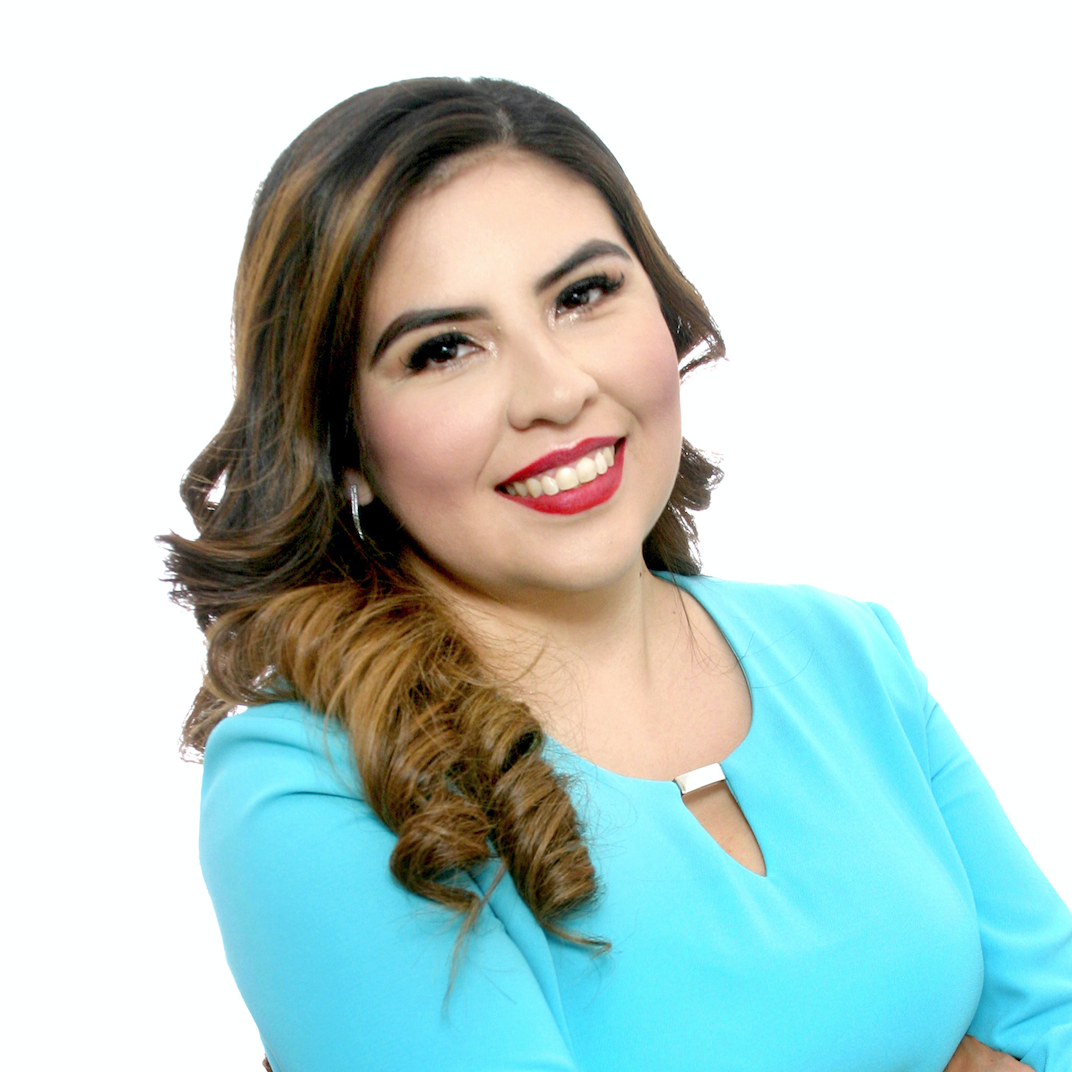
Carmen Victoria Felix
Space Consultant
Carmen Victoria Félix is a Mexican space consultant with a BSc in Electronics and Telecommunications Engineer and a Masters in Space Sciences.
Carmen has professional experience in the field of networks, telecommunications, software and hardware testing, and satellite systems. She worked at NASA Ames Research Center for the department of small satellites. While at NASA, Carmen started collaborative programs between Mexico and NASA Ames to offer Mexican students the opportunity to do internships and summer programs at this center. She participated as one of the experts in the creation of the Mexican Space Agency, where she shared her ideas and proposals for the foundations of the space sector in Mexico.
She has been Teaching Associate in the Summer Space Programs offered by ISU and has taught at the Space Business & Management department for several years.
Carmen has been member of the Space Generation Advisory Council since 2009. She served as a point of contact in Mexico for four years and has been leading space-related programs for the younger generations around the world. Carmen has worked on Mars analogue missions in Austria, Spain, USA, the Netherlands and Poland, covering roles like engineer, control center team member, crew, capcom, and mission director.
Based in the Netherlands, Carmen has been collaborating with organizations like the International Association for the Advancement of Space Safety, a nonprofit that focuses on scientific and safety development in all space systems, the “Women Towards Space” group of the Mexican Space Agency, the Mentoring Group “STEM Girls Can” program of the Mexican Public Education Secretary, and the Organisation for Economic Co-operation and Development.
In 2018, she was the first Mexican to graduate from the Citizen-Scientist Astronaut Candidates Program by project PoSSUM, performing acrobatic flights, tests and operations in space suits, egress training in space capsules, emergency procedures and survival at open water, and parabolic flights to conduct microgravity experiments for MIT and the Canadian Space Agency.
Carmen has been awarded by international organization like SGAC with the Young Space Leader in 2017 and the Pioneer Award in 2019. She was included in the Forbes’ list of the 100 Most Powerful Women in Mexico in 2017 and 2019, in the “Sinaloenses Ejemplares” Hall of the Government of Sinaloa, in the list of the 50 People that Transform Mexico, and she is winner of the “Woman Tec 2019” award by Tec de Monterrey. She is considered among the 100 life stories that are shared in the book “Those Who Inspire: Mexico ”of UNESCO, and the book“ Mexicans that changed history”
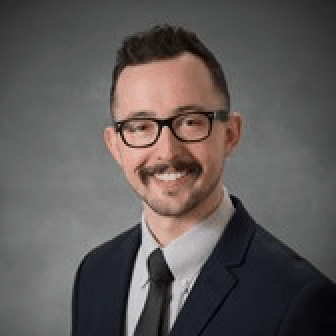
Josh Wolny
Project Manger
Secure World Foundation
As a project manager, Mr. Wolny works to support all of the issue-areas that SWF is engaged in with research, event planning, and independent publications. His specific interests are space weather policy, space situational awareness, other security issues, remote sensing, and space commercialization. Prior to moving to D.C. for graduate education, Mr. Wolny was an eighth-grade science teacher in Cleveland, Ohio.
Mr. Wolny attended Cleveland State University where he earned a Bachelor of Arts degree in International Relations, focusing on East Asia. Mr. Wolny recently (May 2018) completed his graduate studies in International Science and Technology Policy, specifically Space Policy, at George Washington University’s Space Policy Institute.
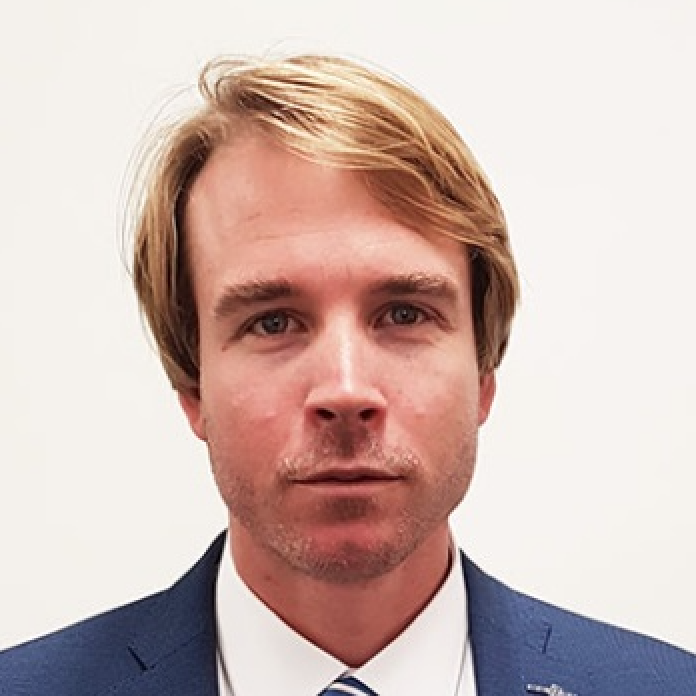
Tim Searle
Senior Policy Advisory
New Zealand Space Agency
Tim Searle is a Senior Policy Advisor at the New Zealand Space Agency. The New Zealand Space Agency is the lead Government agency for space policy, regulation and business development relating to outer space and high-altitude activities from New Zealand. At the Space Agency his work stream covers a number of areas which fall under the space umbrella, including: developing policy, negotiation of international agreements and the design of R+D investments.
Prior to working at the New Zealand Space Agency, Tim was working at Spacetec Partners, a space specific management consultancy, where he worked on a number of public European Space projects with public institutions (European Commission, ESA, EGNSS and National Space Agencies). Tim’s earlier work outside of the Space domain included strategy consulting on new technologies to enhance primary industries.
Tim’s key strengths lie in Space policy, market forecasting, access to finance and economic modelling. Key technology focusses are: small launchers, the small satellite market, disruptive new technologies and clean space.
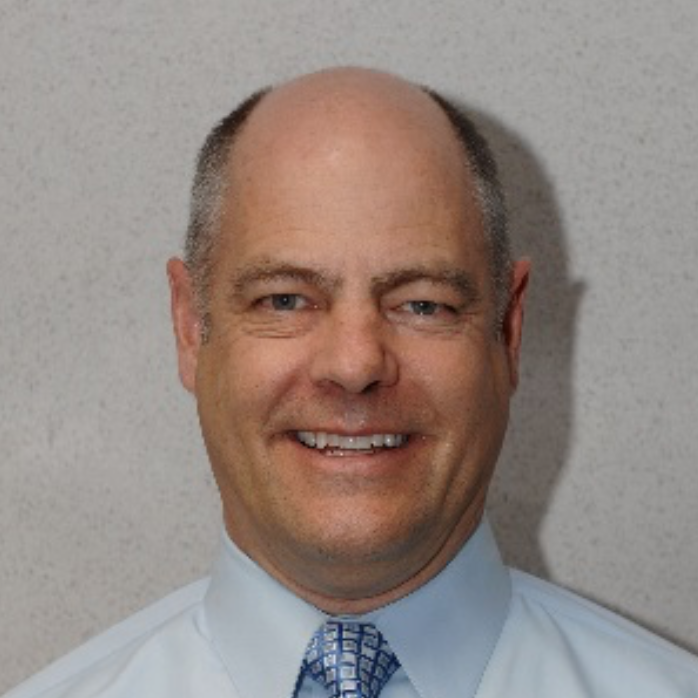
David Murrow
Sr. Manager, Strategy and Business Development
Deep Space Exploration, Commercial and Civil Space
Lockheed Martin Space
Dave Murrow is the Senior Manager of Deep Space Exploration Strategy and Business Development for Lockheed Martin’s Corporation’s Space Systems Company. Dave has a bachelor’s and master’s degrees in Aerospace Engineering from the University of Colorado and the University of Texas at Austin, respectively. Dave has worked on space science and exploration missions since 1987, at Lockheed Martin, the Jet Propulsion Laboratory, and as the owner of a small business. He has helped to explore the moon, Mars, several planets, comets and asteroids.
Current, he is focused on extending Lockheed Martin’s proven heritage in robotic and human spaceflight into the next phase of exploration missions. He is passionate about combining human, robotic, and commercial elements into new models for discovering, exploring, and working in space.
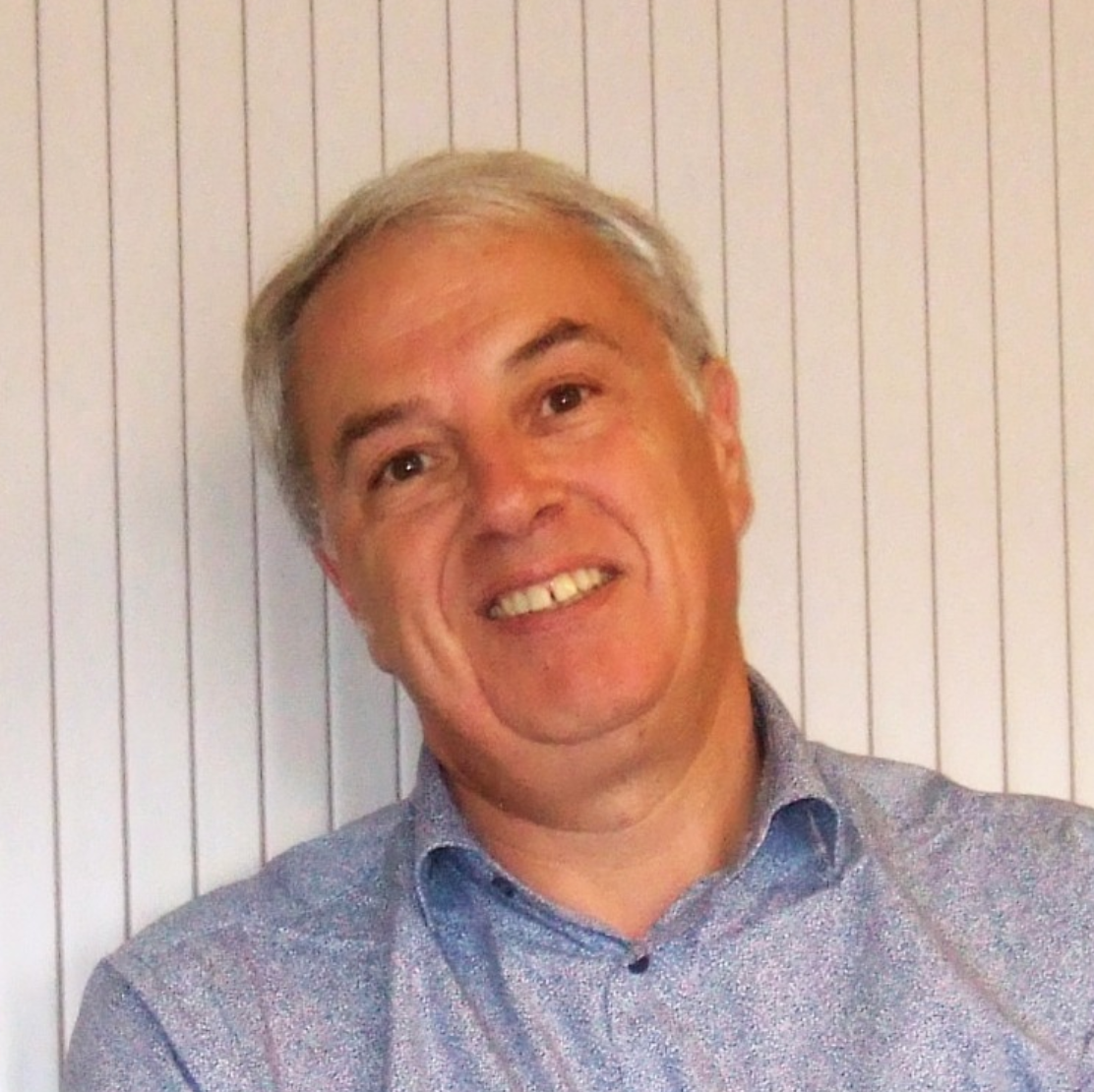
Gil Denis
Senior manager – Technology and Innovation development
Airbus Defence and Space
Gil DENIS is in charge of R&T and innovation development for Airbus Defence and Space, has 35 years of experience in system engineering, advanced studies and project coordination in the field of space technologies, Earth observation applications and information systems.
Gil DENIS holds an Engineer’s Degree from the Ecole Nationale Supérieure des Télécommunications de Bretagne, with expertise in signal and image processing. As from 1986, he worked for Matra Espace on high performance computing, ground segments and special projects.
Between 1997 and 2011, he was in charge of developing the Earth observation services and applications, in the context of Copernicus. He has been involved in various projects aiming at service development with commercial and institutional customers (CNES, ESA, European Commission). He had various positions either with management responsibilities or as business developer.
During the past years, in the context of New Space, his work focused on innovation in space, the new business models for Earth observation services and emerging space applications. A particular area of interest is the evolution of the role of private and institutional actors in the development and sustainable operation of space infrastructures. The relation and interfaces between the service component and the infrastructure is one of his topics of interest.
In his current position, his main activity is the identification and evaluation of emerging technologies and innovative start-ups and SMEs. Gil Denis is corresponding member of the International Astronautics Academy and very active in education and outreach initiatives.

Victoria Gammino
Chief Scientist of Disaster Intelligence
Dr. Gammino is the Chief Scientist of Disaster Intelligence and a Visiting Global Health Scholar at the Drexel University Dornsife School of Public Health. She
was an epidemiologist with the US Centers for Disease Control and Prevention (CDC) for 15 years, she has applied geospatial analytics and remote-sensing techniques to improve access to health care for hard-to-reach populations such as nomadic pastoralists and those living in conflict zones. Her professional portfolio has included infectious disease research in Africa, Asia, and the Americas to support tuberculosis elimination efforts and, most recently, polio eradication. From piloting the use of geospatial data to track polio vaccinators in northern Nigeria to conducting an outbreak investigation on a remote Pacific atoll, Dr. Gammino’s experience bridges sectors and continents. She has collaborated with the Radiant Earth Foundation, World Health Organization, UNICEF, FAO, USAID, host governments and non-governmental organizations to improve global health operations and strengthen policies through evidence-based practices. In 2013, she received the CDC Director’s Award for Innovation in recognition of her work to design PQS-compliant vaccine cold chain and specimen transport equipment.
Dr. Gammino holds a master’s degree in epidemiology from Tulane University and a Ph.D. in international health from Johns Hopkins University. She recently co-released a compilation of case studies to illustrate how providing access to spatial data can provide answers to an array of global challenges.
Lunch NASA SMD/OGC Panel
Moderator
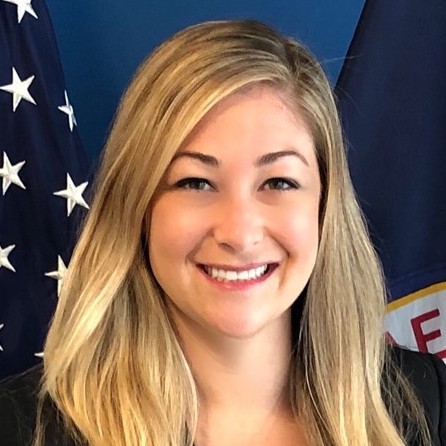
Jessica Deihl
Attorney
NASA Goddard Space Flight Center
Jessica A. Deihl is an attorney with NASA Goddard Space Flight Center focusing on a wide variety of government contract and fiscal law issues including interagency and Space Act agreements, contract financing, public-private partnerships, real estate, and procurements. Jessica originally joined NASA as a Presidential Management Fellow at NASA Headquarters supporting the Commercial Spaceflight Program on the Commercial Crew and Commercial Cargo initiatives. Jessica detailed to the Federal Aviation Administration’s Office of Chief Counsel, where she supported the Office of Commercial Space Transportation on launch and re-entry licensing. Jessica also served the White House Office of Science and Technology Policy as special assistant counsel for commercial spaceflight legislation. Jessica received her Bachelor of Arts from Cornell University in Ithaca, NY and her Juris Doctor from the American University, Washington College of Law where she was the Managing Editor of the Business Law Review. Jessica also volunteers as legal counsel for the Space Generation Advisory Council (SGAC).
Panellist
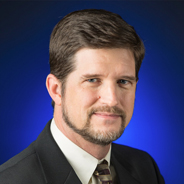
George Tahu
Program Executive for Mars Exploration in the Planetary Science Division
NASA Headquarters
George Tahu is a Program Executive for Mars Exploration in the Planetary Science Division at NASA Headquarters. He is currently responsible the development of NASA’s next robotic rover mission to Mars in 2020, and has previously lead the development of robotic lunar landers, astrobiology cubesat payloads, and science instrument contributions to international partner missions.
Panellist

Kristin Pollard
Attorney
NASA Marshall Space Flight Center
Kristin Pollard Kiel is a solutions-oriented attorney at the National Aeronautics and Space Administration Marshall Space Flight Center in Huntsville, AL. Curiosity fuels her passion to lend her legal expertise to support the development of long-term, high-value research and discovery missions. Since joining the Agency in 2012, Pollard Kiel has been highly sought after for her practical, commonsense approach to legal issues in the areas of ethics, employment litigation and procurement law.
A two-time Innovation Award recipient, Pollard Kiel has been recognized as an influential attorney by Black Enterprise, the State Bar of Georgia and others. She currently serves on the Ethics Committee for the National Bar Association, is the Acting President for the Oakwood University Attorney Alumni Association and is a member of Jack and Jill of America, Incorporated. Pollard Kiel is a proud graduate of Oakwood University and Mercer University School of Law.
Panellist
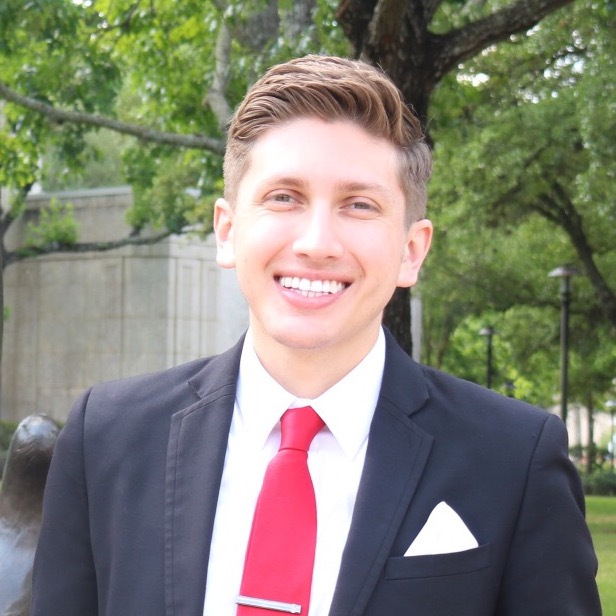
David Lopez
Attorney-Adviser for the International Law Practice Group in the Office of the General Counsel
NASA Headquarters
David Lopez is an Attorney-Adviser for the International Law Practice Group in the Office of the General Counsel at NASA Headquarters in Washington, DC. He received his J.D. from University of Houston Law Center in Houston, Texas where he interned at Johnson Space Center’s Office of the Chief Counsel. He received his Bachelor’s degree from Vassar College in political science focusing on international affairs and U.S. foreign policy. While in law school, Mr. Lopez and his teammate were crowned National Champions of Catholic University of America’s National Moot Court Immigration Competition in 2016 held in Washington DC.
At NASA, Mr. Lopez supports the Science Mission Directorate, Space Technology Mission Directorate, and the Aeronautics Research Mission Directorate by reviewing and advising on international agreements with other space agencies and foreign partners. He also supports international group on export control matters, planetary defense, and space law-related matters.
He is the recipient of the NASA Agency Honors Award for his role as Chair of the NASA Hispanic Outreach and Leadership Alliance, Headquarters Honors Award for diversity and inclusion, and the NASA Legal Teamwork Award.
Panellist
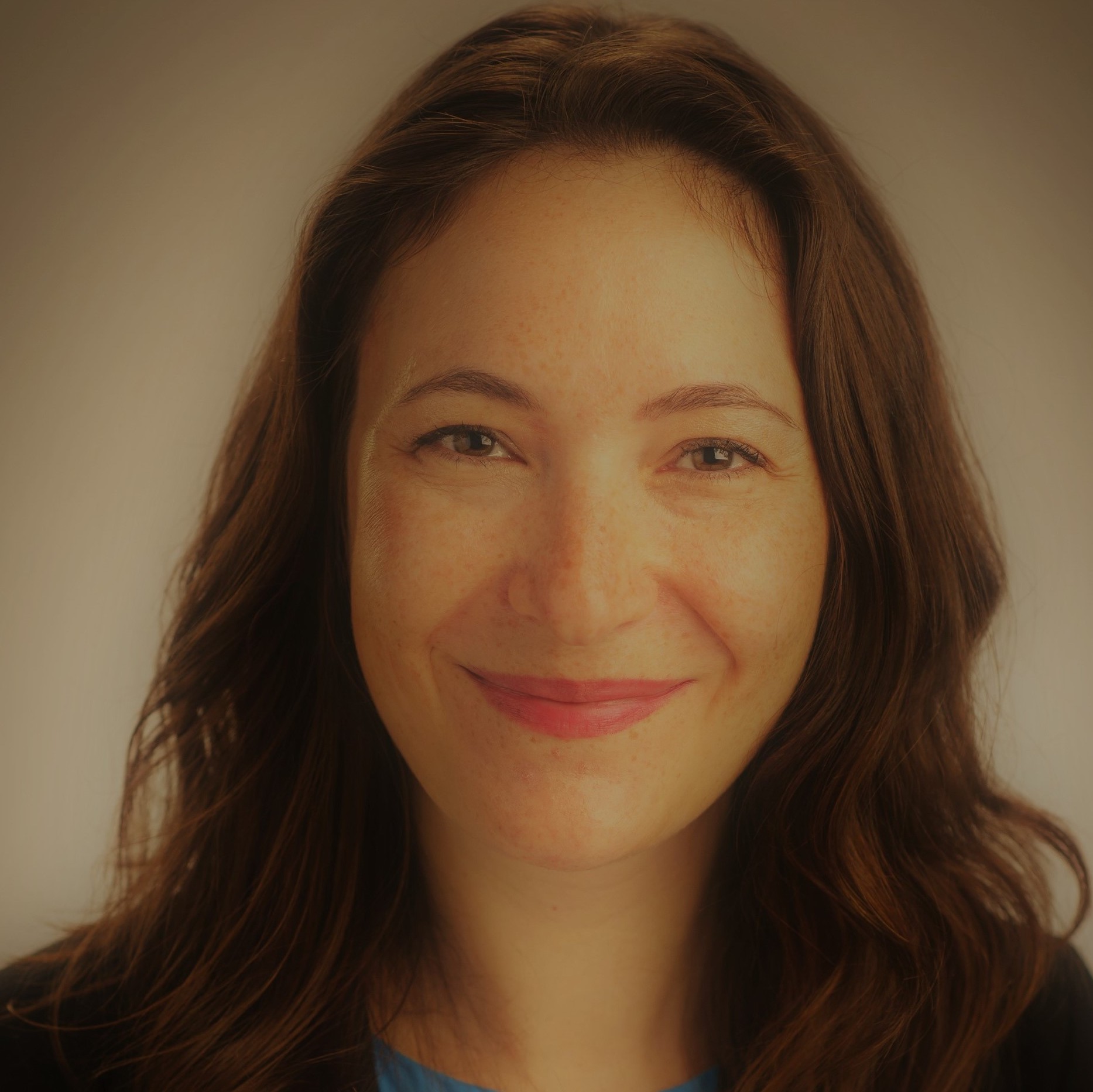
Sara Kravitz
Attorney-Advisor
NASA Ames Research Center
Sara Kravitz has been an Attorney-Advisor at NASA Ames Research Center in California since 2018, where she focuses on a wide variety of transactional matters including commercial and interagency partnerships, ethics, procurement, and human research. She received a Bachelor of Arts in International Relations from the University of Pennsylvania, and a Master of Arts in International Affairs and Juris Doctor from American University, where she was a staff member on the American University International Law Review. She previously worked for administrative law judges at the Board of Veterans’ Appeals in DC; and prior to law school she taught English in Japan for two years.
Panellist
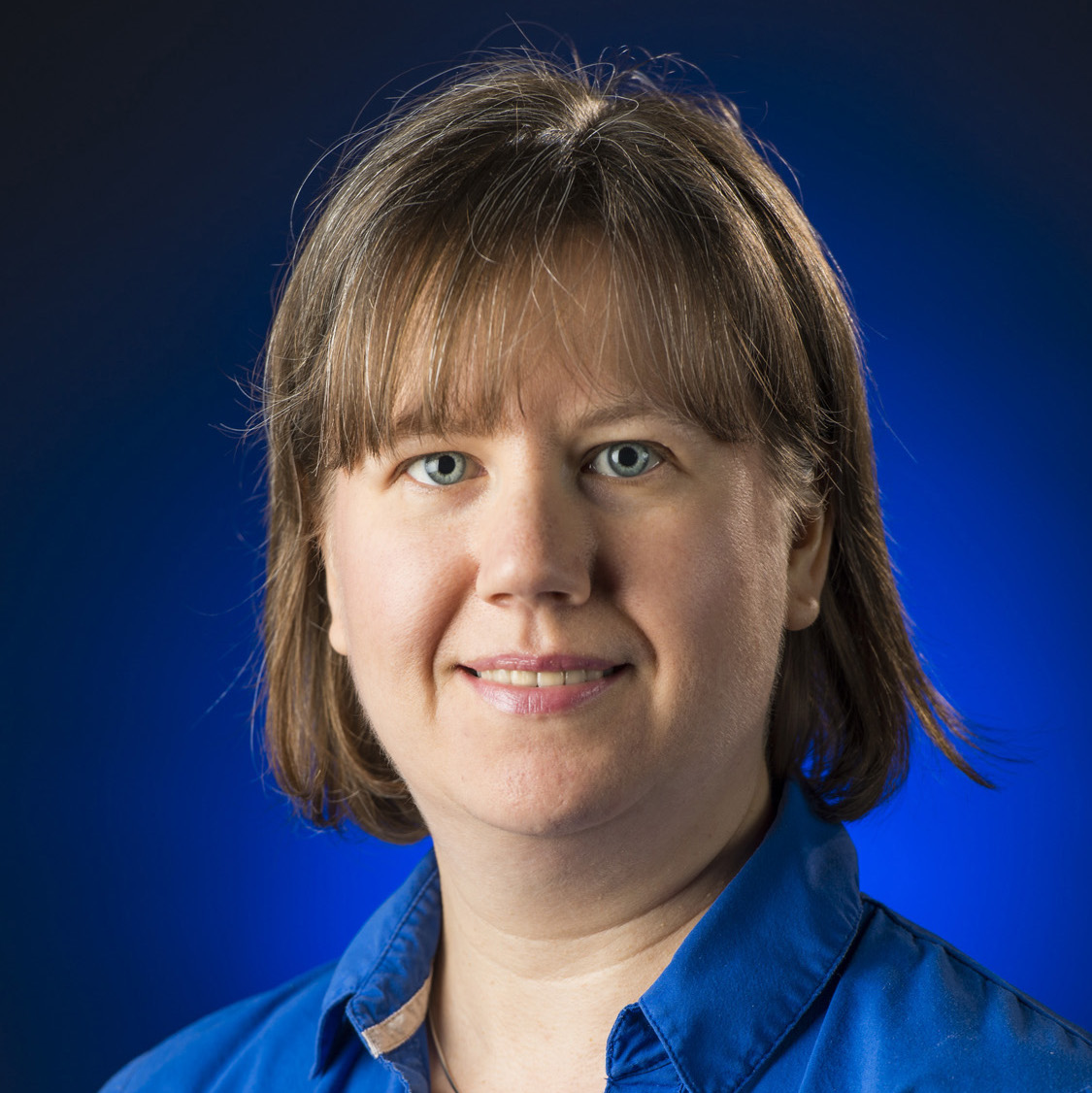
Sarah Noble
Program Scientist
NASA Headquarters
Dr. Noble is a program scientist at NASA Headquarters. She earned her BS in Geology from the Univ of Minnesota and her MS and PhD in Geological Sciences from Brown University. Something of a “NASA nomad”, Dr. Noble has also spent time at NASA JSC, NASA MSFC, and NASA GSFC, as well as a brief stint working for Congress. Her scientific research is on space weathering processes on the Moon and other airless bodies. At HQ, she is the Program Scientist for the Psyche mission and runs several research and analysis programs, including PDART (Planetary Data Archiving, Restoration, and Tools) and SSERVI (Solar System Exploration Research Virtual Institute). She is currently working on finding payloads to send to the Moon’s surface through the Commercial Lunar Payload Services (CLPS) contract. Asteroid 133432 Sarahnoble is named in her honor.
Spotlight Speakers

Maruška Strah
Executive Director
World Space Week Association
Maruška Strah is passionate about space and space law ever since she came to read her first chapter on international space law. Her interest only deepened during her work at the United Nations Office for Outer Space Affairs, where she gained significant insight in the work of both, public and private sector involved with the space industry. Her main areas of interest are global health and security in connection to space. Her enthusiasm and passion for space will lead her to bringing space closer to people, especially youth.
Maruška gained practical experience working for the Permanent Mission to the OSCE of the Republic of Slovenia and the EU Affairs and International Cooperation Service at the Ministry of Health of the Republic of Slovenia. As a procurator of a medical institute she has obtained unique experience combining practical approach to health in terms of both, user and provider, and combined them both with the experience she gained during her work with international organizations. In 2014, she founded a company Family Clinic d.o.o., determined to facilitate health services, focused on preventive measures and support of lifestyle changes. She is a trained Peer Mediator and has experience in the field of conflict management. She is an experienced journalist and wrote for the Vienna Review as the Politics Editor during her studies.
She earned bachelor’s degree in international relations and media communications from Webster University Vienna, where she also earned the title Master of Arts in International Relations. Her final work was titled “Comparison of Luxembourg, United States of America and People’s Republic of China Space Law Changes.” In September 2018, she took on the role of the Executive Director of the World Space Week Association.

Kyle Acierno
Vice President of Global Sales and Strategy
ispace
Kyle works as the Vice President of Global Sales and Strategy at ispace, inc. ispace is a lunar exploration and transportation company with its headquarters in Japan and regional offices in Luxembourg and at NASA AMES in California. ispace managed the front-running competitor in the Google Lunar XPRIZE, Team Hakuto and raised a record $95M in December of 2017.
With both Canadian and Italian citizenship and a passion for exploration, Kyle has visited over 100 countries. He speaks Chinese and has limited proficiency in Spanish. He received a Bachelors in International Security and a Masters of Science in Space Studies.

Pascale Ehrenfreund
Incoming President
International Astronautical Federation (IAF)
Pascale Ehrenfreund is the Chair of the Executive Board of the German Aerospace Center (DLR). The German Aerospace Center is among the largest centers for aerospace, energy and transportation research in Europe with more than 8600 employees at 40 institutes and 20 locations in Germany. Since three decades she contributed as Principal Investigator, Co-Investigator and Teamleader to ESA and NASA astronomy and planetary missions as well as experiments in low Earth orbit
and on the International Space Station. Prior to her appointment to DLR she was the President of the Austrian Science Fund (FWF) from 2013-2015. Pascale Ehrenfreund is also Research Professor of Space Policy and International Affairs at the Space Policy Institute/George Washington University in Washington DC, Chancellor of the International Space University ISU and incoming President of the International Astronautical Federation IAF. Pascale Ehrenfreund holds a Master degree in Molecular Biology, a PhD in Astrophysics, and a Master degree in Management & Leadership. The asteroid “9826 Ehrenfreund 2114 T-3” bears her name.
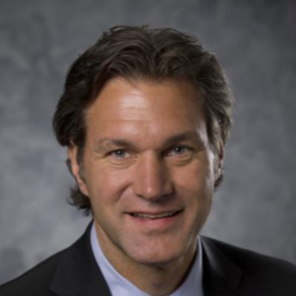
Bruce Chesley
Senior Director, Strategy, Space & Launch, Defense, Space & Security
Boeing
Dr. Bruce Chesley is the senior director of Strategy for Space and Launch, a division of Defense, Space & Security (BDS). Chesley assumed this role in April 2018 as BDS announced a new operating structure to sharpen focus on key markets and move faster to meet customers’ needs. Chesley leads a team charged with analyzing the marketplace, establishing a growth strategy and helping shape the future direction of the Space and Launch division, which includes the International Space Station; the CST-100 Starliner commercial crew vehicle; NASA’s Space Launch System (SLS); government and commercial satellite systems; and Boeing’s participation in United Launch Alliance. Prior to the BDS restructure, Chesley was the senior director of Strategy for Space and Missile Systems.
Previously, Chesley led the Boeing Global Broadband System program within Network & Space Systems (N&SS), with responsibility for the design, development, deployment and operation of a satellite-based system to provide very high data-rate connectivity to support a wide range of Internet and communications services for residential, commercial, institutional, governmental and other professional users worldwide.
Chesley served in several leadership roles in business development for N&SS starting in December 2013. As leader of Global Sales & Marketing, he was responsible
for customer engagement, new business, advocacy and marketing efforts, research and development investments, mergers and acquisitions, business unit strategy and leadership development. As Chief Architect, he was also responsible for technology investment and product development for the current and future needs of the business for space exploration, cybersecurity, missile defense and satellite systems for military and commercial applications.
Chesley joined Boeing in 2000 after serving in the U.S. Air Force. His Air Force assignments included positions at Air Force Space Command, the National Reconnaissance Office and the Department of Astronautics at the U.S. Air Force Academy.
He earned a doctorate in aerospace engineering at the University of Colorado, Boulder. He holds a Master of Science in aerospace engineering from the University of Texas at Austin and a Bachelor of Science in aerospace engineering from the University of Notre Dame.
An author of more than 20 technical articles and book chapters on space systems engineering and satellite design, Chesley is a senior member of the American Institute of Aeronautics and Astronautics, a member of the American Astronautical Society and was named a Vice President of the International Astronautrical Federation Bureau in October 2018.
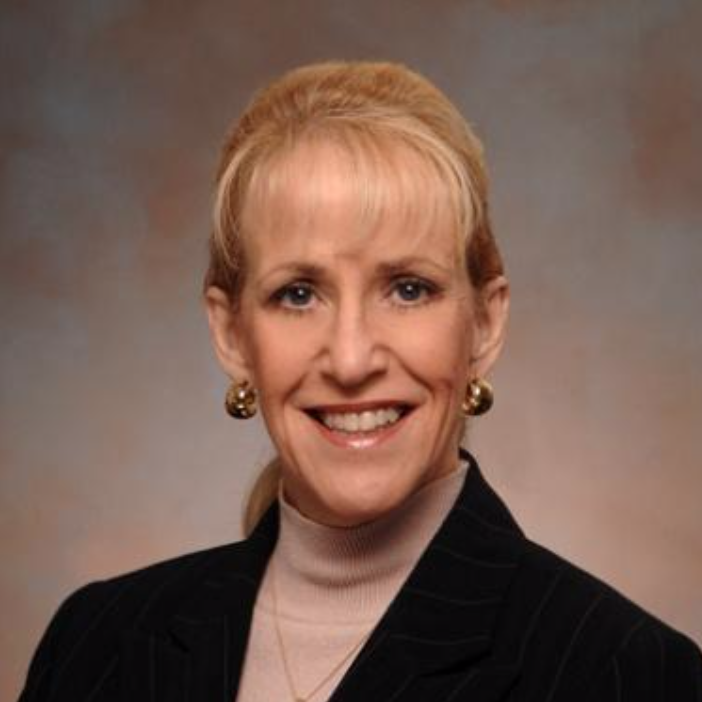
Mary Lynne Dittmar
President and CEO
Coalition for Deep Space Exploration
Dr. Mary Lynne Dittmar is President and CEO of the Coalition for Deep Space Exploration, an industry trade group supporting human exploration, science, commerce, and American leadership in space. Under her leadership the Coalition has grown from 5 companies to more than 70 over the past four years and is a recognized source for policy, technical and business information in the aerospace and defense sector.
Earlier in her career Dr. Dittmar managed the mission operations group for The Boeing Company on the International Space Station Program. Later, she acted as a special advisor to the NASA Astronaut Office before her appointment as Boeing Chief Scientist for Commercial Utilization of the ISS. More recently she was Senior Policy Advisor to International Space Station National Laboratory. She has also served as a senior advisor to NASA, the DoD, and the FAA.
Mary Lynne is a Fellow of the National Research Society and an Associate Fellow of the American Institute for Astronautics and Aeronautics. From 2012-2014 she served as a member of the National Research Council Committee on Human Spaceflight, and is beginning her third term as a member of the Executive Committee of the Space Studies Board of the National Academies. She is also a member of the Users’ Advisory Group of the National Space Council and of the Commercial Space Transportation Advisory Committee for the FAA. Dr. Dittmar resides in Washington, D.C.
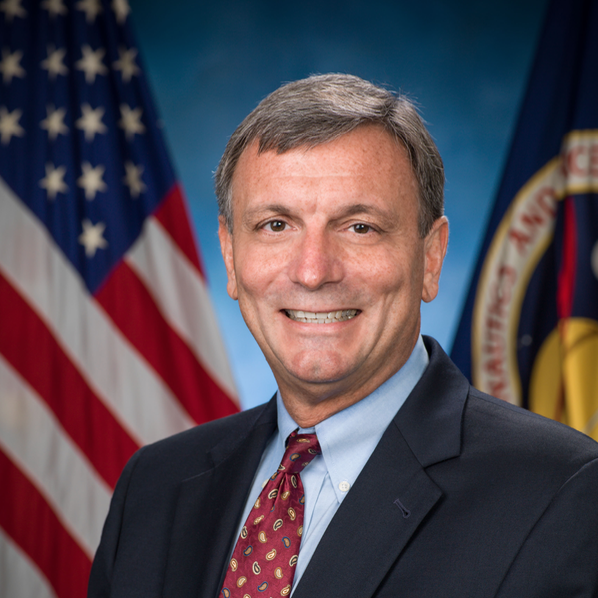
Mark Kirasich
Orion Program Manager
National Aeronautics and Space Administration (NASA)
Mark Kirasich is manager of NASA’s Orion Program. As Orion Program Manager, he is responsible for design, development and testing of the Orion spacecraft, which is being developed to send astronauts to deep space destinations, as well as for spacecraft manufacturing under way at locations across the country and in Europe.
Kirasich began his NASA career in 1983 at the agency’s Johnson Space Center in Houston as a member of the space shuttle flight operations team. Mr. Kirasich advanced to the position of lead space shuttle payload officer in mission control. In 1996, he was selected as a flight director in charge of planning and executing NASA human spaceflight missions, serving in that capacity for multiple space shuttle missions and International Space Station expeditions. He also served as the lead NASA flight director for the Automated Transfer Vehicle, working with European and Russian colleagues to develop operational plans to conduct the first successful docking of this spacecraft to the space station. Between 2006 and his selection as Orion Program manager in 2015, he served as Orion’s deputy program manager.
A native of Chicago, Kirasich received a bachelor’s degree in electrical engineering in 1982 from the University of Notre Dame and a master’s degree in electrical engineering in 1983 from Stanford University. He is the recipient of numerous awards including NASA’s Outstanding Leadership Medal and Space Flight Awareness Award, and a Johnson Space Center Director’s Commendation.
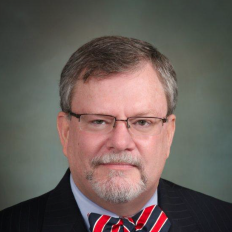
Michael Hawes
Vice President & Orion Program Manager
Lockheed Martin Space
Michael Hawes, DSc, is the Vice President and Orion Program Manager for Lockheed Martin Space Systems Company. Dr. Hawes joined Lockheed Martin in July 2011 after concluding a 33-year career with the National Aeronautics and Space Administration (NASA), and was selected to head up Lockheed Martin’s Orion Program Office in 2014.
Prior to joining the Orion Program, he served as the Director for Human Space Flight Programs with Lockheed Martin’s Washington Operations organization. In this role he was responsible for representing the Human Space Flight/ Space Systems Company organization with the Administration and the congress.
Dr. Hawes has a diverse background of program management, aerospace engineering, mission operations, and leadership experience that is critical to leading one of the company’s most notable programs.
During his career with NASA, Dr. Hawes served as the Associate Administrator for Independent Program and Cost Evaluation (IPCE) where he was responsible for providing objective studies and analyses in support of policy, program, and budget decisions by the NASA Administrator. He also served as the Deputy Associate Administrator for Program Integration in the Office of Space Operations at NASA Headquarters in Washington, DC, and supported the Space Shuttle Program focusing on Return to Flight actions as well as the transition and disposition of Space Shuttle assets following the program’s conclusion.
In addition, Dr. Hawes served as the Deputy Associate Administrator, International Space Station (ISS) and Program Director for the ISS at NASA Headquarters where he directed the space station budget; established and implemented station policy and coordinated external communications; and liaison activities with the Administration, congress, industry and the station’s international partners. During his tenure with the ISS Program, 13 Space Shuttle assembly mission were completed, the critical Russian Service Module launched, the first five Expedition crew launches were accomplished. All assembly missions were completed successfully as major components were integrated in space without ever seeing their counterparts on the ground.
Prior to joining the Space Station Program Office in Reston, Dr. Hawes served in several technical and managerial positions at NASA’s Johnson Space Center in Houston, TX. His responsibilities included the integration of experiments and commercial satellites into the Space Shuttle. Hawes served as the Payload Officer in the Shuttle Mission Control Center for several missions from STS-5
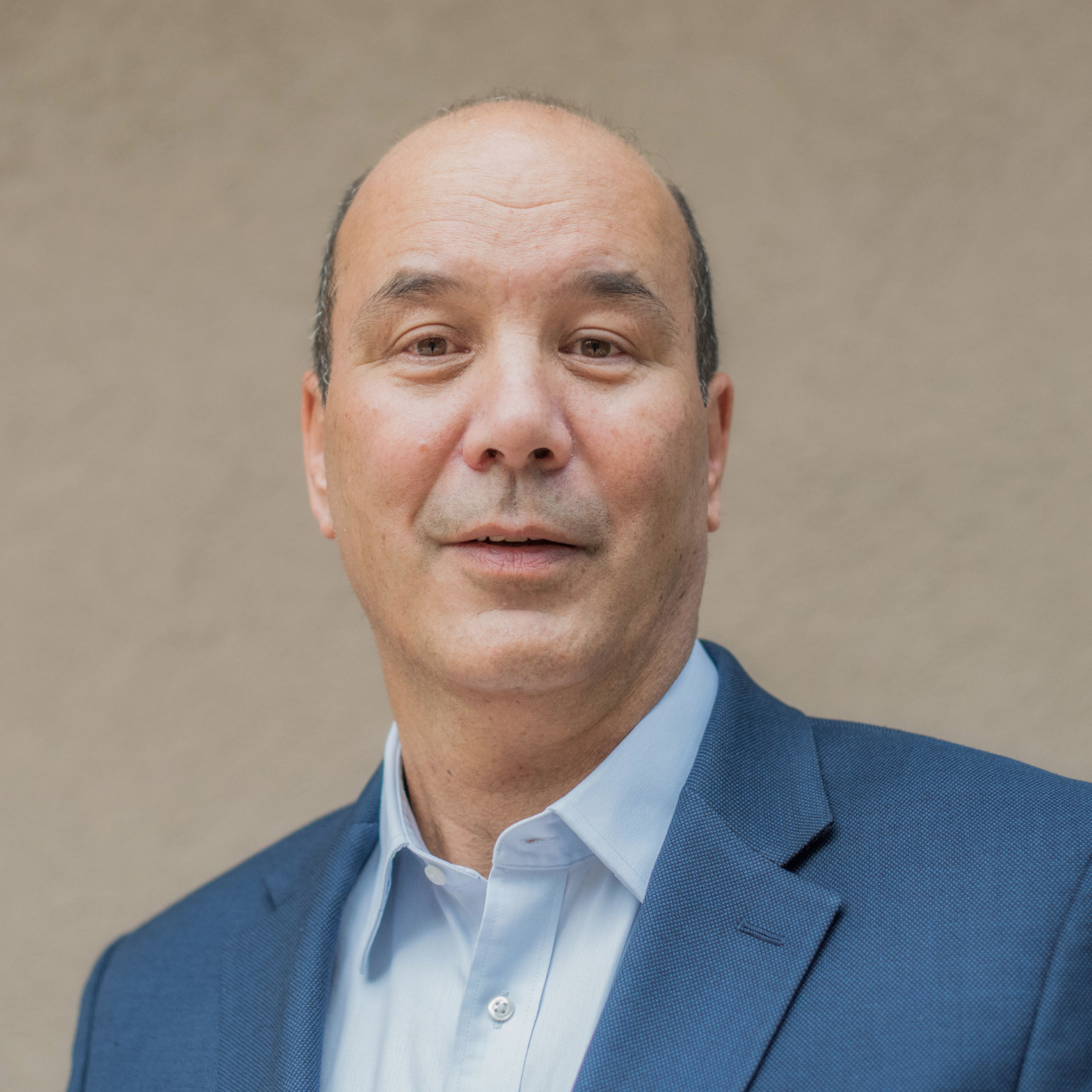
Mark Kinnersley
Head of Advanced Projects and Business Development in the Human Spaceflight Unit
AIRBUS U.S. Space and Defense, Inc.
Mark has worked in the field of space exploration for many years for AIRBUS in Europe and the United States. As head of advanced projects and business development in the Human Spaceflight unit of AIRBUS he presented to the ‘Review of U.S. Human Spaceflight Plans Committee’ in 2009 and from 2013 to early 2019 was the AIRBUS liaison for the Orion European Service Module to Lockheed Martin Space Systems in Denver. Recently Mark has moved to a new position, Director Business Development, at AIRBUS U.S. Space and Defense, Inc., looking at future space exploration activities for Airbus and in particular the Artemis/ Lunar Gateway programs.
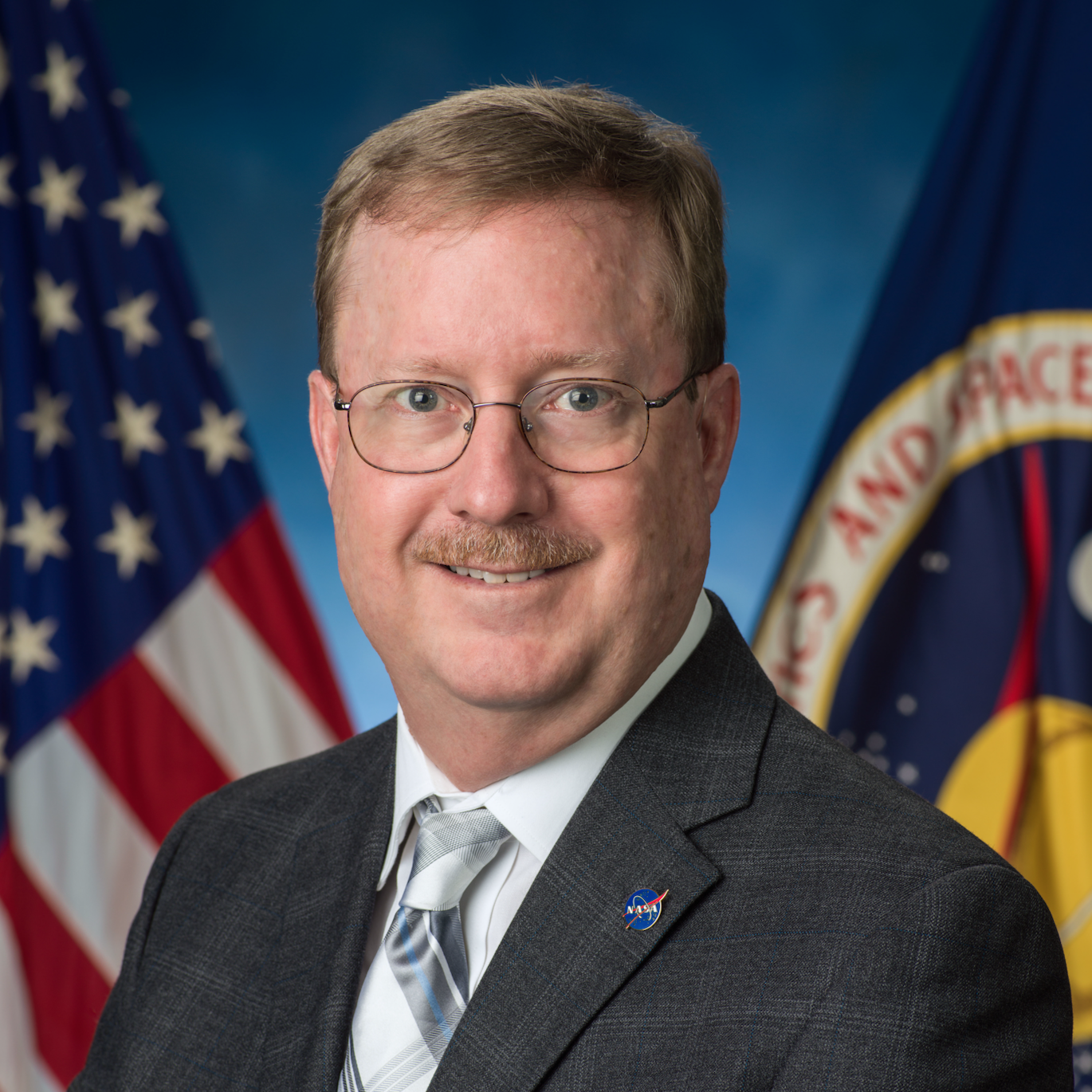
David Draper
Deputy Chief Scientist
National Aeronautics and Space Administration (NASA)
NASA Deputy Chief Scientist David Draper has 27 years of professional experience in studying the Earth, Moon, planets, and Solar System. These scientific studies explored frontier questions regarding characteristics, processes, and events of and on Earth, the Moon, and Mars. His scientific specialty is in experimental simulations at high temperatures and pressures, using basaltic magmas as probes of the processes occurring within planetary interiors. His prior experience includes leading the Astromaterials Research Office at NASA Johnson Space Center in Houston, Texas, and he has also led teams proposing competed robotic missions of planetary exploration.
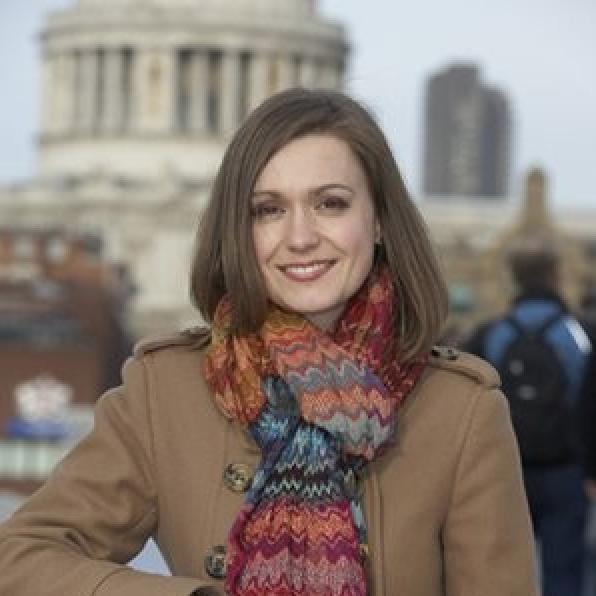
Kate Arkless Gray
Media Strategist
Kate Arkless Gray (aka “@SpaceKate”) is a media strategist with experience developing content/social media strategies and innovative projects for a range of high-level international organisations including the BBC, Al Jazeera, Wellcome Trust and private space company PTScientists.
She is a qualified broadcast journalist who has written for New Scientist, i-news, Spaceflight Magazine, Which? Computing, Space:UK and more, and regularly appears on Sky News and the BBC World Service programme “Digital Planet” to discuss the latest space news.
Kate is an adviser to For All Moonkind, whose mission is to protect off-world heritage sites for generations to come. Former NASA administrator Charles Bolden called her “a true champion!” and challenged her to get more young people involved with space – something she is always keen to do.
Kate completed the International Space University Space Studies Programme in 2012 and won NASA’s International Space Apps Challenge twice in London, becoming a global winner in 2013 for the “most inspirational app”. Author of multiple papers presented IAC and a former SGAC point of contact for the UK, she also organised the UK’s first space “unconference”: SpaceUP:UK.

Dan Dumbacher
Executive Director of the American Institute of Aeronautics and Astronautics (AIAA)
Before joining the AIAA staff in January 2018, Dumbacher was a Professor of Engineering Practice in the School of Aeronautics and Astronautics at Purdue University, where he taught courses in systems thinking, systems engineering, and space policy.
Prior to Purdue, Dumbacher served as the Deputy Associate Administrator, Exploration Systems Development Division, Human Exploration and Operations Mission Directorate at NASA Headquarters. In that capacity, he provided leadership and management as the Program Director for Exploration Systems Development, which included: the Space Launch System, Orion, and Ground Systems Development and Operations development and integration efforts. He led a national team of over 5,000, spanning all NASA centers and industry, and was responsible for a $3 billion annual budget.
During his career, he has received numerous awards and honors including the coveted Silver Snoopy Award and the NASA Distinguished Service Medal. In 2015, Purdue recognized him with the Gustafson Teaching Award.
Dumbacher earned his bachelor’s degree in mechanical engineering from Purdue University and a master’s degree in business administration from the University of Alabama in Huntsville. He has also completed the Senior Managers in Government program at Harvard University.
Dumbacher is a native of Indianapolis, Indiana. He and his wife Lee have three grown children.
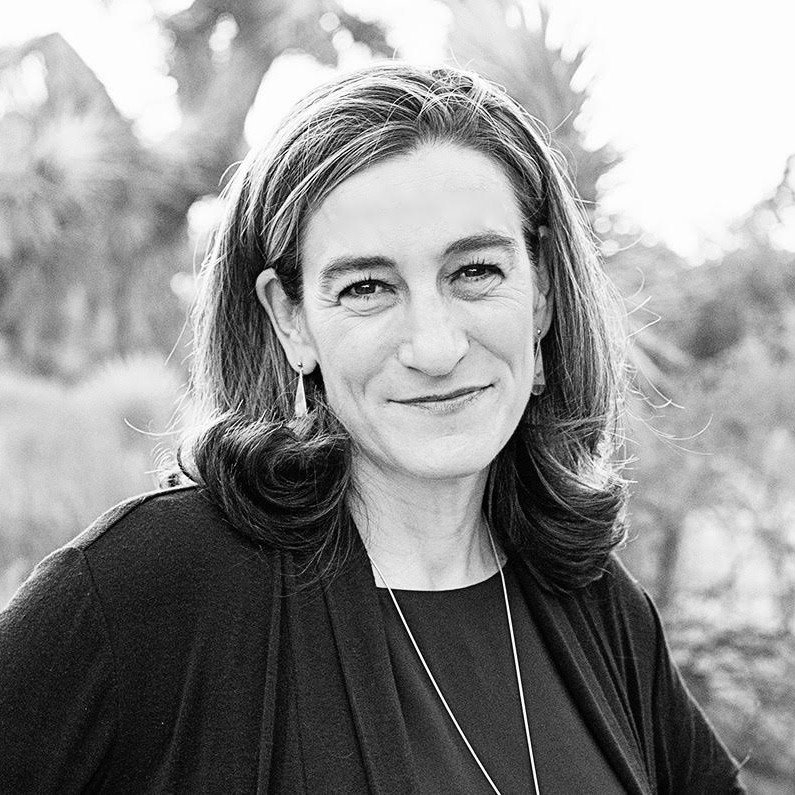
Loretta Whitesides
Yuri’s Night Co-founder
Loretta met her husband George Whitesides at the 1st Space Generation Forum in Vienna, Austria in 1999 during the United Nations Unispace III conference. They went on to Co-Found Yuri’s Night, The World Space Party and then
bought tickets for sub-orbital spaceflights on Virgin Galactic’s Spaceship ‘Unity.’ Unity successfully flew to space for the second time on February 22, 2019.
Trained as an astrobiologist at Stanford and Caltech, Loretta has been to the Canadian Arctic to study plant life in extreme environments and to the hydrothermal vents at the bottom of the ocean with “Titanic” director James Cameron to film a 3D IMAX documentary, “Aliens of the Deep.” Loretta also has over five hours of time spent floating weightless (30 seconds at a time) on a 727 aircraft as a Flight Director for Zero-G Corporation and regularly teaches at the International Space University.
Loretta has been featured in PC Mag, 10% Happier with Dan Harris, and Wired. She has been a plenary speaker at the International Astronautical Congress, featured at Future Talks, Conference on World Affairs and TEDxNASA. She is also the author of a book called, “The New Right Stuff: Using Space to Bring Out the Best in You,” and leads a leadership course at Virgin Galactic and Virgin Orbit that trains the staff in creating the life of their dreams. Loretta’s passion is creating the culture of the Sci-Fi future to go along with the spaceships and training young space leaders. Her birthday is April 12.
Special Track Speakers
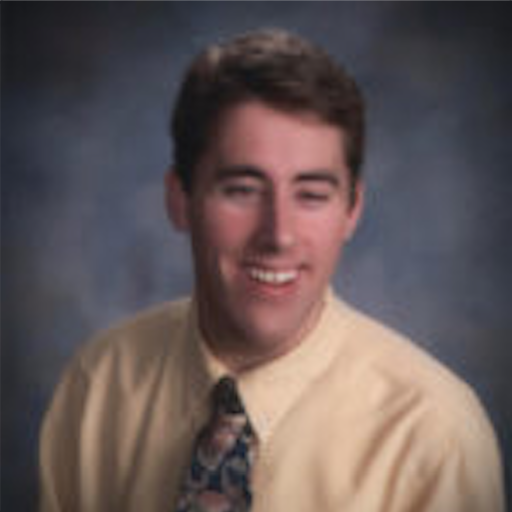
Hayden Dahmm
Analyst
TReNDS, SDSN New York
Hayden Dahmm is an analyst with the Thematic Research Network on Data and Statistics. His work involves researching ways that data is being used to advance sustainable development, as well as the types of investments needed to strengthen modern statistical systems. Additionally, he supports the development of the United States Cities SDG Index. Hayden graduated from Swarthmore College in 2015 with a BS in Environmental Engineering. He continued as a Marshall Scholar in the UK, receiving an MSc in Environmental Policy and Regulation from Imperial College London and an MSc in Environmental Policy and Regulation from the London School of Economics.
Fathom is a professional Guide Dog supporting the work of Hayden Dahmm. He began his current contract immediately after graduating from the Seeing Eye in 2012. Fathom literally provides a guiding vision, and he has experience working in ten different countries across four continents. Over his career, Fathom has received multiple recognitions, including an honorary certificate from Swarthmore College and a complement from HM Queen Elizabeth II.
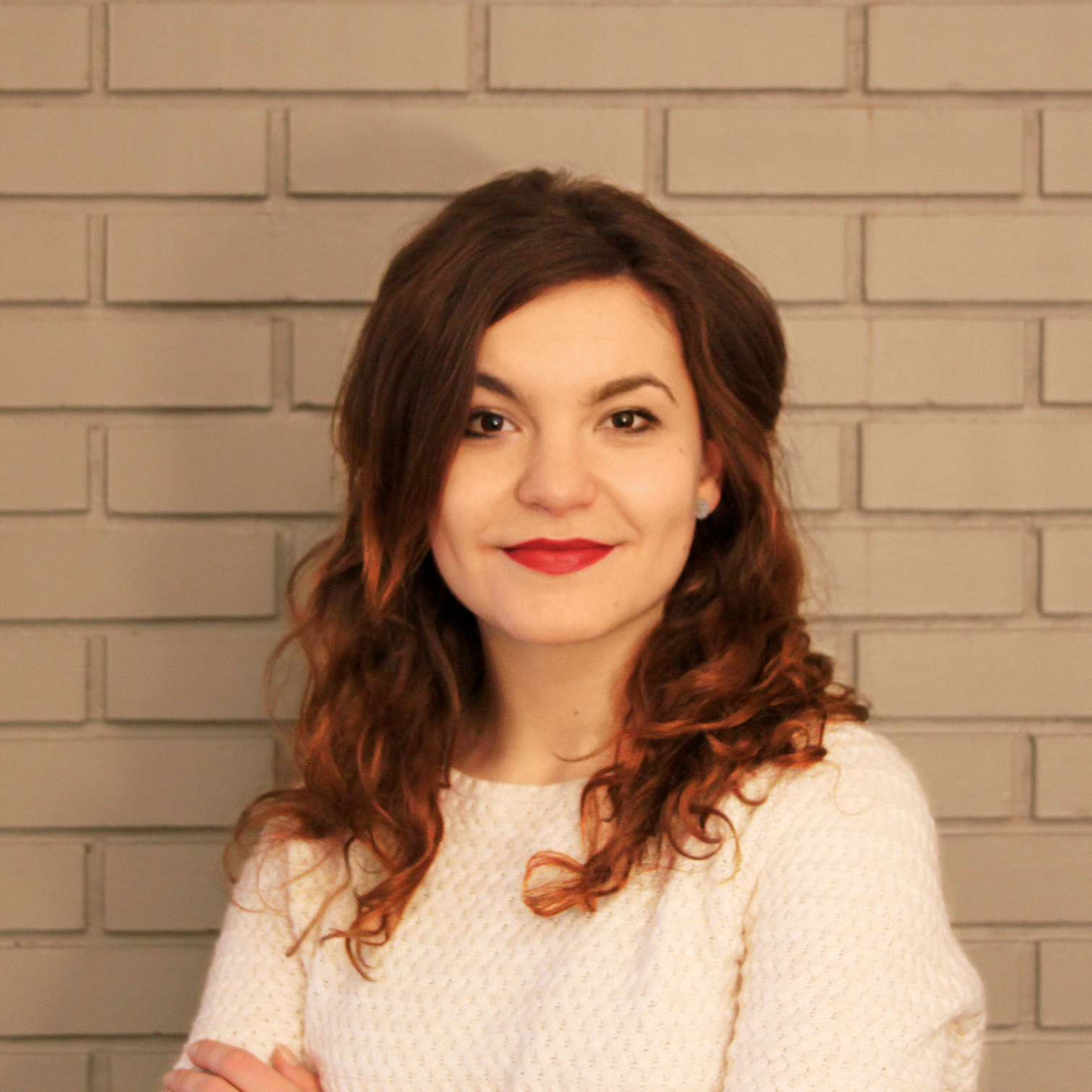
Alexandra Jercaianu
Project Manager
Eurisy
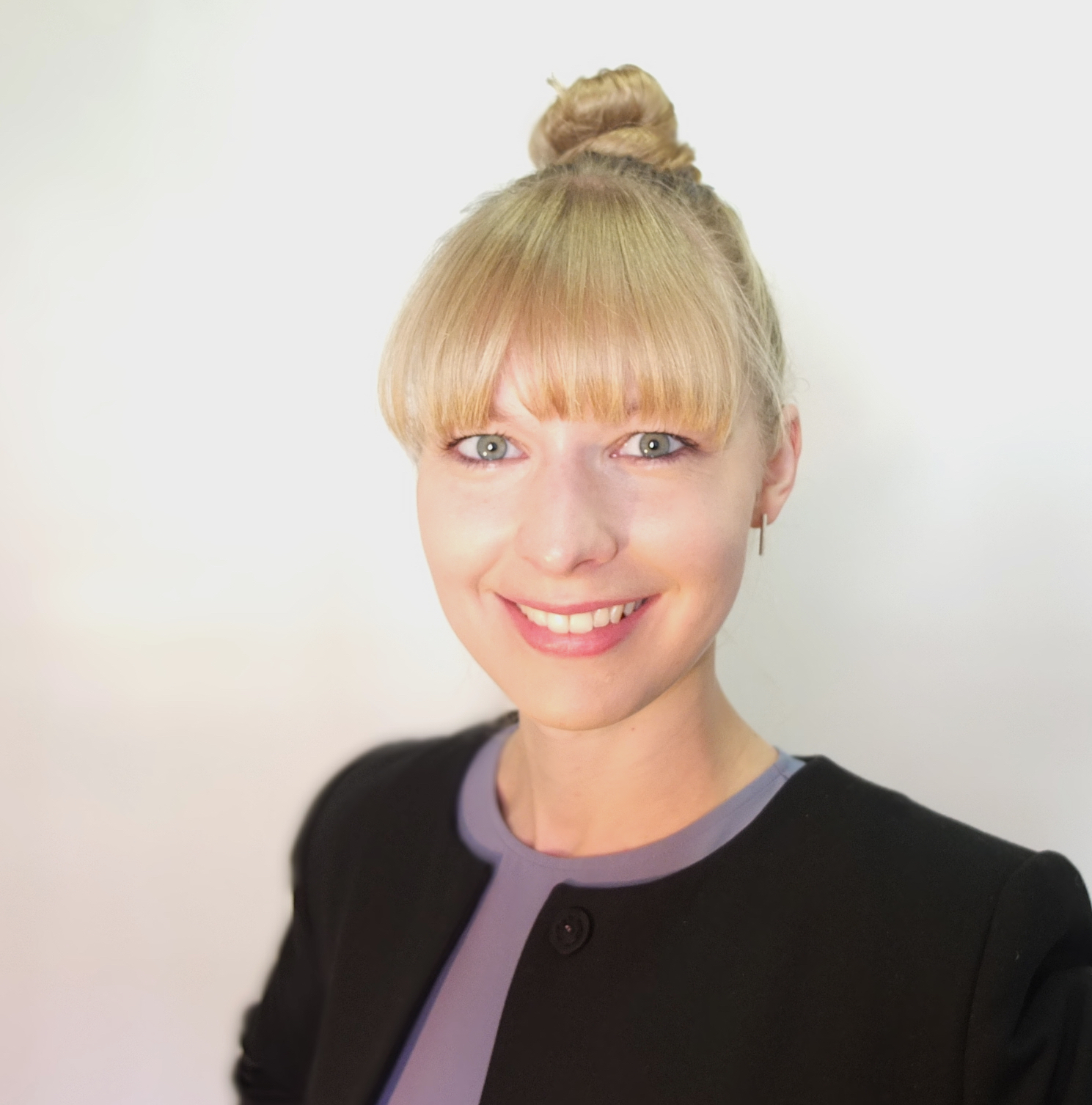
Vera Leister
Application Developer in Geo-Intelligence,
Airbus Defence and Space
Vera is currently working as an Application Developer in the Geo-Intelligence department of Airbus Defence and Space and focusing on SAR and mapping applications.
She holds a Bachelor Degree in Mathematics and a Master’s degree in Geodesy and Geoinformation Science. Previously, Vera commenced the Young Graduate Trainee programme at ESA (ESTEC) working for the metrology team in the satellite test centre as well as in Earth Observation Mission Science – related to GNSS reflectometry.
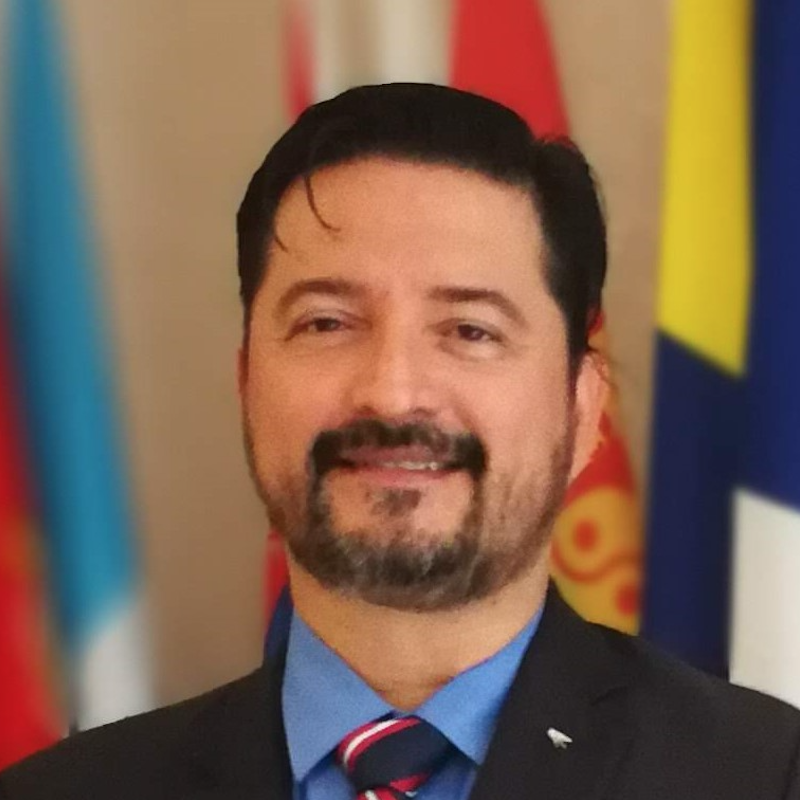
Alejandro J. Román Molinas
General Director of Aerospace Development and Execution
Space Agency of Paraguay (AEP)
Computer Programmer and Bachelor’s degree in Computer Systems Analysis by the Polytechnic School of the National University of Asunción-Paraguay (UNA), with several courses of specialization in information technology and communications, specialized aviation systems, and others in America, Europe and Asia. He studied Civil Aviation Administration at the Civil Aviation Academy of Singapore (SAA), Master in Business Administration (MBA), has a Specialization in Higher Education, coursing Master in Education Management and a Specialization in Remote Sensing and GIS, with more than 25 years of professional experience in the public and private sector mainly in the areas of Technology, Education, Innovation and Aviation, was for 12 years IT Manager of the Civil Aviation Authority of Paraguay (DINAC), Was for 5 years Academic Director of the Computer and Systems Engineering careers in the Engineering Faculty of the Integration of the Americas University (UNIDA) in Paraguay, now he is continuing as an undergraduate and graduate degree Professor in Technology, Innovation Management, and Administration, Was also Director of the ICT Observatory of the Ministry of Technology of Paraguay (SENATICs) where he has made and published several studies on the Internet use in Paraguay. Prof. Román is the Regional Contact Point of the United Nations Office for Outer Space Affairs (UNOOSA), National Coordinator of the World Space Week Association (WSW), Member of the Spanish Network of Planetology and Astrobiology (REDESPA), Member of the STEM to STEAM study group of the International Academy of Astronautics (IAA), Member of the International Association of Astronautics (IAF) and Alternate Director for Paraguay of the Latin American and Caribbean Space Network (ReLaCa). He is currently the General Director of Aerospace Development and Execution of the Space Agency of Paraguay.

Valanathan (Val) Munsami
Chief Executive Officer
South African National Space Agency (SANSA)
Dr Munsami holds a PhD in Physics from the University of Kwazulu Natal and a Masters degree in Business Leadership from the University of South Africa, a Space Studies Program Diploma from the International Space University, and a Certificate in International Air, Space and Telecommunications Law from the University of Pretoria. In 2002, he joined the Department of Trade and Industry, as Deputy Director, working on issues relating to the non-proliferation of weapons of mass destruction and the space sector. In 2005, he joined the National Research Foundation, as a Manager, where he oversaw the implementation of South Africa’s bilateral science and technology agreements, the management of South Africa’s membership to a number of science and technology multilateral fora, and oversight of the South African chapter of the International Scientific Union (ICSU). In 2007, he joined the Department of Science and Technology as Director (and later promoted to Chief Director) for Space Science and Technology, where he was involved in the development of South Africa’s National Space Strategy and National Space Policy and oversaw the establishment of SANSA. Within the same institution, he was promoted to Deputy Director-General: Research, Development and Innovation, where he was responsible for Space Science, Radio Astronomy, Biotechnology and Health, Hydrogen and Energy, and Innovations Instruments. On winning the bid to co-host the SKA in 2012, he then became the Chief Specialist for Astronomy and African Space Science. In this role, he led the development of South Africa’s Multi-Wavelength Astronomy Strategy and the SKA Readiness Strategy. He also chaired the African Union Space Working Group, which was tasked with the development of the African Space Policy and the African Space Strategy that was approved by the African Union Heads of State in January 2016. As of January 2017, he has been appointed as the Chief Executive Officer (CEO) of SANSA. He is currently a member of the South African Council for Space Affairs (SACSA) and is a Vice President of the International Astronautic Federation (IAF) for Developing Countries and Emerging Nations. He has also been recently inducted as an academician of the International Academy of Astronautics (IAA) and sits on the Advisory Board of the Space Generation Advisory Council (SGAC).
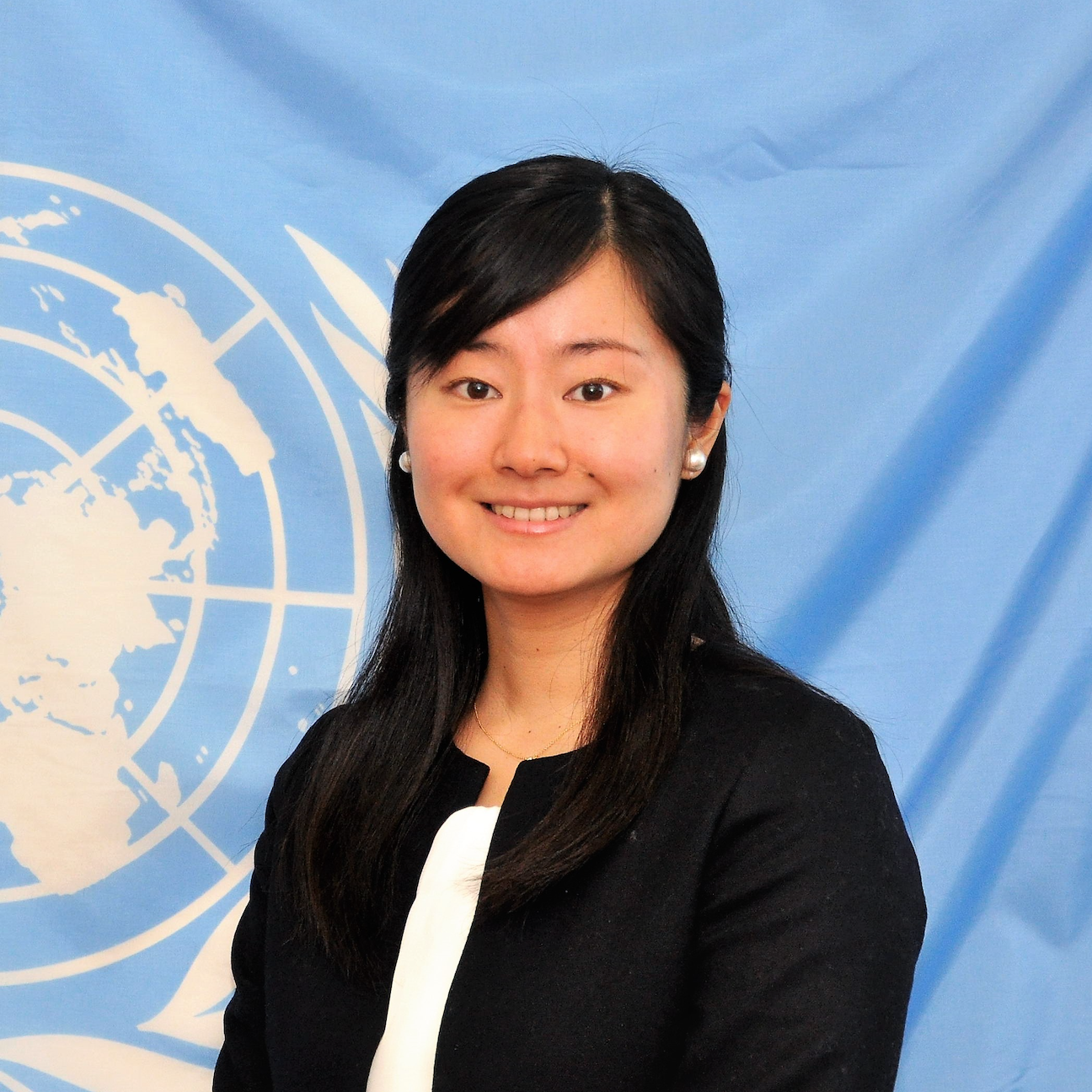
Ayami Kojima
Expert
United Nations Office for Outer Space Affairs (UNOOSA)
Born in Japan, Ayami Kojima spent her junior-high school days in Singapore. Ayami has been working as an Expert at the United Nations Office for Outer Space Affairs (UNOOSA) since January 2017, in charge of programmes on Human Space Technology Initiatives and Space for Youth. Prior to joining UNOOSA, Ayami worked for the Japan Aerospace Exploration Agency (JAXA) where she focused on Space Education.

Tim Searle
Senior Policy Advisory
New Zealand Space Agency
Tim Searle is a Senior Policy Advisor at the New Zealand Space Agency. The New Zealand Space Agency is the lead Government agency for space policy, regulation and business development relating to outer space and high-altitude activities from New Zealand. At the Space Agency his work stream covers a number of areas which fall under the space umbrella, including: developing policy, negotiation of international agreements and the design of R+D investments.
Prior to working at the New Zealand Space Agency, Tim was working at Spacetec Partners, a space specific management consultancy, where he worked on a number of public European Space projects with public institutions (European Commission, ESA, EGNSS and National Space Agencies). Tim’s earlier work outside of the Space domain included strategy consulting on new technologies to enhance primary industries.
Tim’s key strengths lie in Space policy, market forecasting, access to finance and economic modelling. Key technology focusses are: small launchers, the small satellite market, disruptive new technologies and clean space.

Javier Stober
Research Engineer
MIT Media Lab
Dr. Javier Stober is a Research Engineer in the Space Enabled Research Group. In that role, he leads the development and operations of the satellite laboratory and fosters collaborations with partnering organizations. Javier earned Ph.D. and M.S. degrees in Aeronautics and Astronautics from Stanford University, researching novel propellants in the area of experimental hybrid rocket propulsion, as well as B.S. degrees in Mechanical and Aerospace Engineering from the University of Florida. He has worked at various organizations across the engineering landscape, public and private, small and large, foreign and domestic, including NASA, Honeywell Aerospace, Boeing, and Space Propulsion Group.
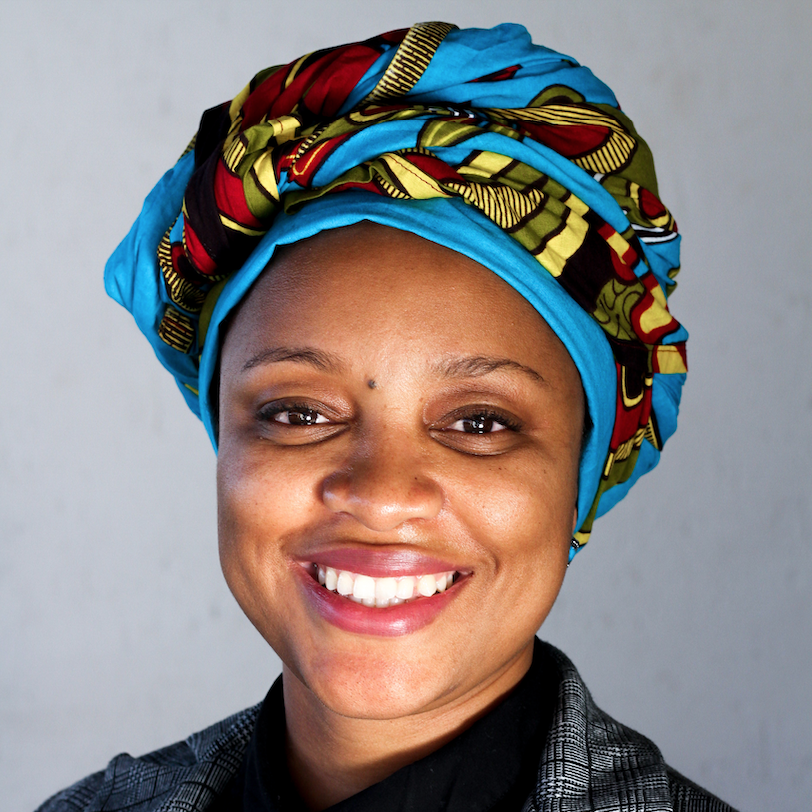
Fikiswa Majola
Deputy Director
Space Systems at the Department of Science and Innovation (formerly Department of Science and Technology in Pretoria (South Africa)
Fikiswa Majola is the Deputy Director: Space Systems at the Department of Science and Innovation (formerly Department of Science and Technology) in Pretoria (South Africa). She went to high school in Swaziland, thereafter completed her National Diploma in Chemical Engineering from the Cape Peninsula University of Technology in 2005. Since then she has worked in science communication as a senior facilitator at the Cape Town Science Centre and a Science Communicator at the Hartebeesthoek Radio Astronomy Observatory (now the South African Radio Astronomy Observatory), before joining government firstly as the Science and Innovation Officer at the British High Commission, and most recently (since September 2014) and the Deputy Director: Space Systems at the national Department of Science and Innovation (DSI). Ms Majola’s current position in one that provides oversight to the implementation of the national space programme (NSP), as well as providing policy advisory to the implementation of the NSP. Her portfolio includes industry development, human capital development and international cooperation. She is currently involved in the project management of the current cubesat build at the Cape Peninsula University of Technology, the project to upgrade the assembly, integration and testing facilities at Houwteq in Grabouw, and ensuring that the entire Houwteq facility is used to its capacity for the industry beyond satellite manufacturing. Ms Majola is a first year Masters students at the University of Cape Town, specialising in Space Studies. ([email protected])
Space Night Speakers
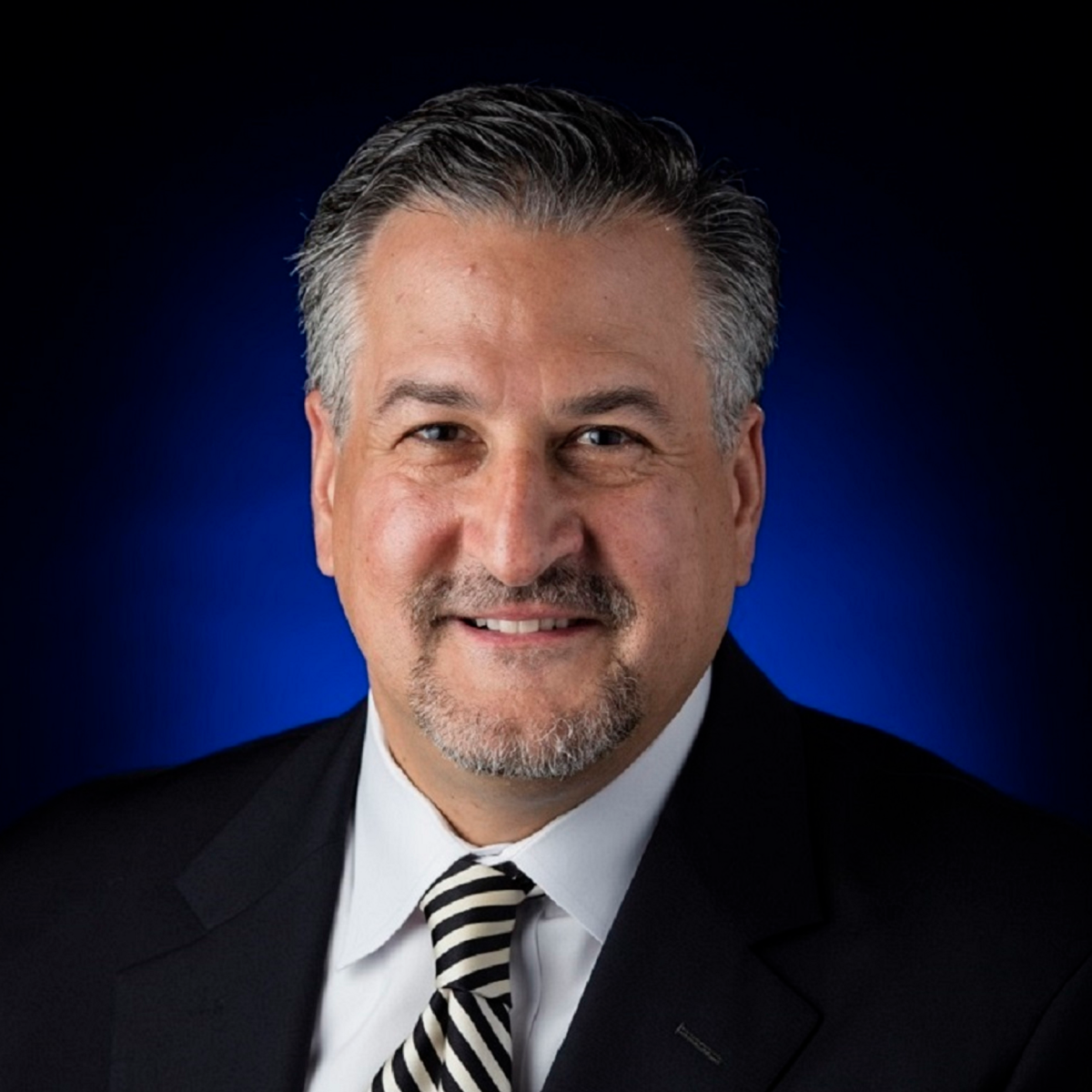
Adam Greenstone
Agency Counsel for Ethics
National Aeronautics and Space Administration (NASA)
Adam F. Greenstone is NASA’s Agency Counsel for Ethics. Mr. Greenstone manages NASA’s Government Ethics program, which advises NASA employees and leaders on U.S. Government standards of ethical conduct and related ethics laws. Supported by ethics officials at each NASA Center, NASA’s Government Ethics program advances NASA’s mission by helping ensure that NASA and its employees maintain the public’s trust. Mr. Greenstone has also authored the article “Ethics and public integrity in space exploration,” Acta Astronautica, Volume 143 (2018), and serves on the Enterprise Risk Management Committee of the International Astronautical Federation.
Prior to returning to NASA in 2004, where he originally practiced from 1992-97, Mr. Greenstone was the General Counsel and Deputy General Counsel of the Office of Administration, Executive Office of the President. As a career civil service attorney, he provided legal counsel and advice for a range of activities within the Executive Office of the President, including ethics, employment, information disclosure, information security, procurement and the establishment of White House interagency groups. Earlier in his career he served as the law clerk to the Honorable Eugene R. Sullivan, Chief Judge of the United States Court of Military Appeals (now the United States Court of Appeals for the Armed Forces).
Mr. Greenstone is a recipient of NASA’s Space Flight Awareness Honoree Award. He earned his Bachelor’s degree from Gettysburg College, his Master’s degree from the London School of Economics and Political Science, and his law degree from George Washington University. He has also participated in executive education at Carnegie Mellon University and Harvard University’s Kennedy School of Government. Mr. Greenstone is admitted to practice law in Pennsylvania, the District of Columbia and New York, and is certified as a Financial Risk Manager (FRM) by the Global Association of Risk Professionals.
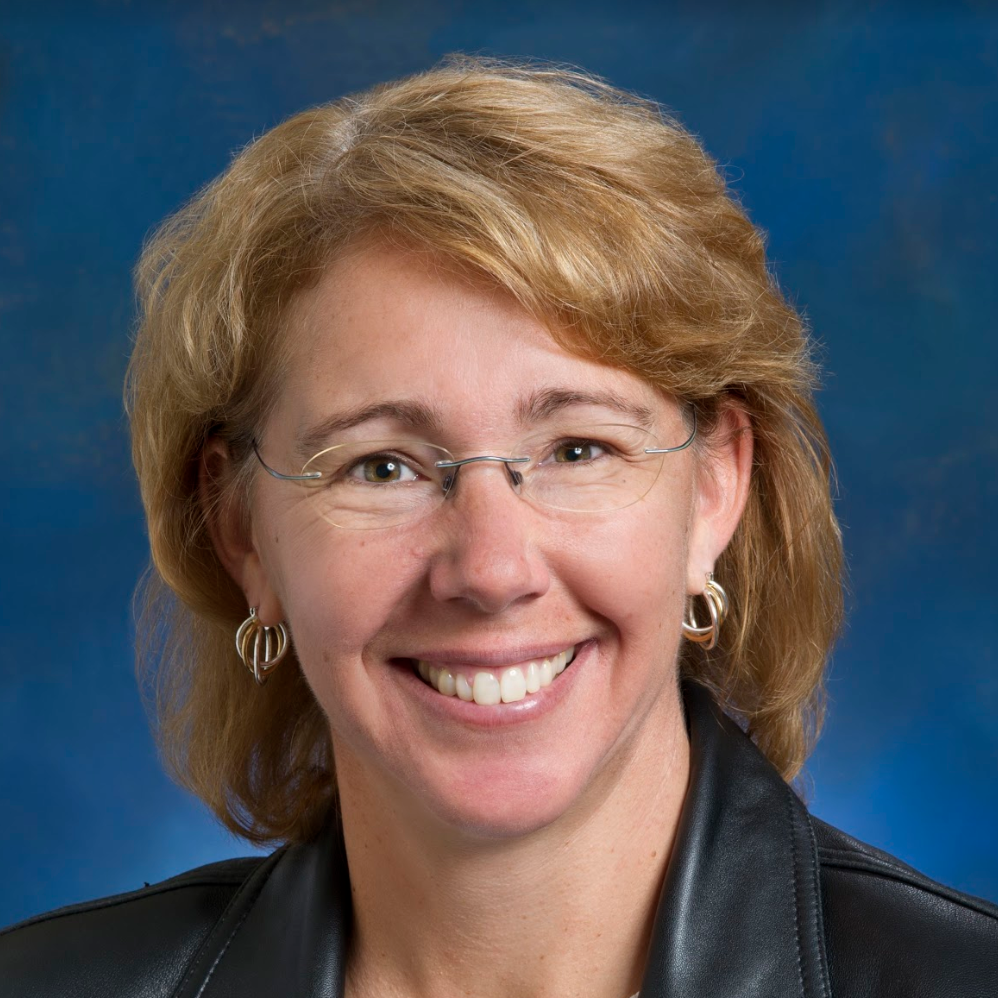
Sandy Magnus
Deputy Director of Engineering
Office of the Secretary of Defense Research and Engineering
Dr. Sandra H. “Sandy” Magnus, is the Deputy Director of Engineering in the Office of the Secretary of Defense Research and Engineering. Prior to joining the DoD she served as the Executive Director of the American Institute of Aeronautics and Astronautics (AIAA), the world’s largest technical society dedicated to the global aerospace profession. Selected to the NASA Astronaut Corps in April, 1996, Dr. Magnus flew in space on the STS-112 shuttle mission in 2002, and on the final shuttle flight, STS-135, in 2011. In addition, she flew to the International Space Station on STS-126 in November 2008, served as flight engineer and science officer on Expedition 18, and returned home on STS-119 after four and a half months on board. Following her assignment on Station, she served at NASA Headquarters in the
Exploration Systems Mission Directorate. Her last duty at NASA, after STS-135, was as the deputy chief of the Astronaut Office. Before joining NASA, Dr. Magnus worked for McDonnell Douglas Aircraft Company from 1986 to 1991, as a stealth engineer. While at McDonnell Douglas, she worked on internal research and development and on the Navy’s A-12 Attack Aircraft program, studying the effectiveness of radar signature reduction techniques.
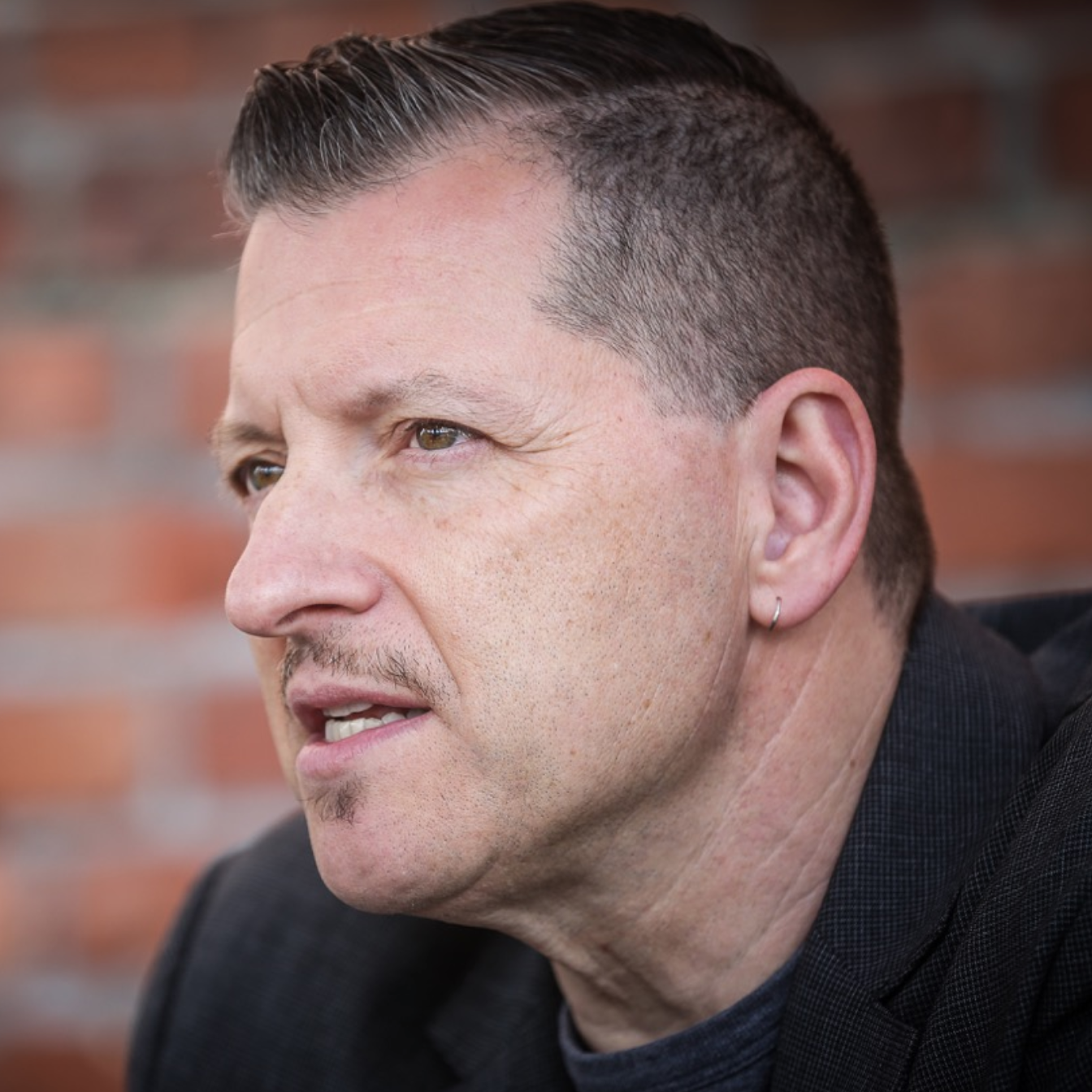
Brent Sherwood
Vice President, Advanced Development Programs
Blue Origin
Brent Sherwood is Vice President, Advanced Development Programs for Blue Origin, a private space company building the foundation for millions of people living and working in space. He is responsible for the development of in–space systems and services for human space flight, space cargo, and space infrastructure that collectively will open space to human expansion. He reports to Blue Origin CEO Bob Smith.
Brent came to Blue Origin from JPL, where he was the founding manager of the JPL Innovation Foundry and later the Program Manager for Solar System Mission Formulation. In those roles he respectively led the integration of JPL‘s mission formulation and competitive proposal operations, and the strategic pursuit of Discovery missions, New Frontiers missions, unsolicited planetary missions, and future planetary flagship missions.
Prior to JPL, Brent was at the Boeing Company, where he led a succession of teams that developed human lunar and Mars exploration system concepts, Space Station Freedom module manufacturing methods, Sea Launch services pursuits, entrepreneurial civil and commercial space initiatives, International Space Station business development, and pursuit of planetary science objectives ranging from the Jupiter Icy Moons Orbiter to Mars Sample Return.
A space architect, Brent is Chair of the AIAA Space Architecture Technical Committee. He has published over 60 papers on the exploration and development of space. Brent holds a summa cum laude Bachelor of Arts degree from Yale, a Master of Architecture degree also from Yale, and a Master of Science in Aerospace Engineering from the University of Maryland.
Closing Dinner Speakers
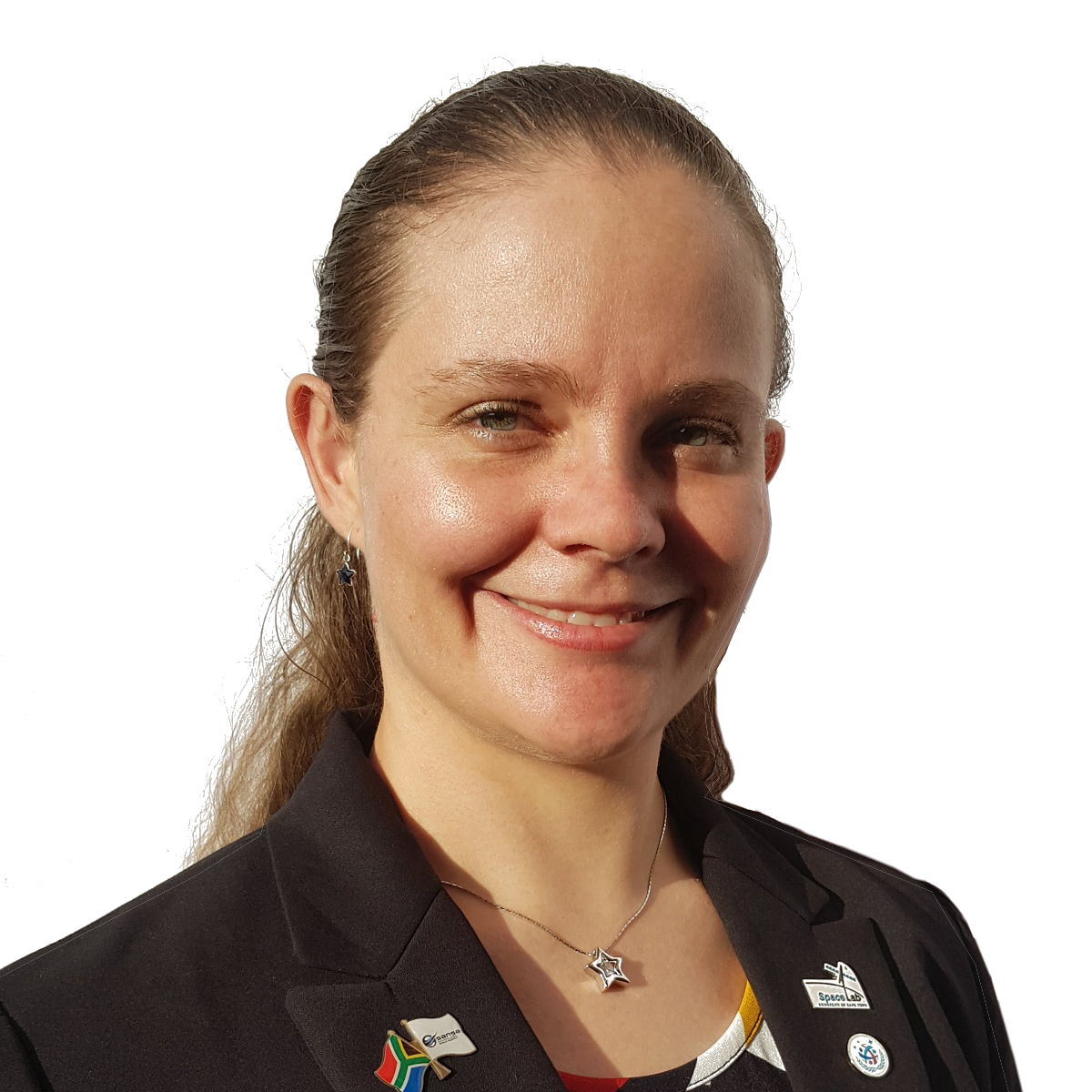
Ani Vermeulen
Space Generation Leadership Award Recipient 2019
Space Generation Advisory Council
Ani Vermeulen has just completed a Master’s degree in Space Studies at the University of Cape Town (UCT) SpaceLab in South Africa. Her prior education includes degrees in engineering, astrophysics and space science. She was a recipient of the SGAC African Space Leaders award in 2018, as well as receiving the African Union’s ALC 2018 Youth Forum Scholarship to represent SGAC at the 2018 African Leadership Conference on Space Science and Technology for Sustainable Development in Abuja, Nigeria. She was a member of the SGC2018 Organising Team and coordinator of the 2018 Space Exploration Workshop in Bremen, Germany. She was named as an IAF 2017 Emerging Space Leader and contributed to the Innovation working group at SGC2017 in Adelaide. Ani participated in the 2016 Space Station Design Workshop (SSDW) at Stuttgart University’s Institute for Space Systems (IRS) in the role of deputy project manager, specialising in cost & risk. She has worked in Antarctica as a volunteer scientist/engineer for the South African National Space Agency (SANSA) on the 2014/2015 Summer Takeover, and has four years of telecommunications industry experience in business & systems analysis and process engineering. A member of the SGAC Space Exploration Project Group, her future career focus will be on space mission design, mission training, and mission operations, with a specific interest in crewed space habitats or planetary missions.
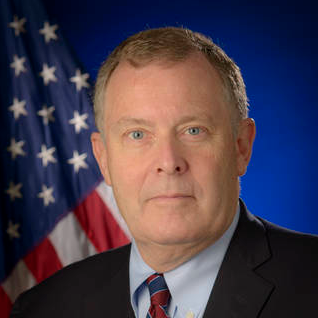
James W. Morhard
Deputy Administrator
National Aeronautics and Space Administration
James Morhard was nominated by President Trump and confirmed to be NASA’s 14th Deputy Administrator. He was sworn in on October 17th, 2018. Jim helps provide overall leadership, planning, and policy direction. He performs duties and exercises powers delegated by the Administrator, assists him in making final agency decisions, and acts in his absence to govern NASA operations. Jim also is responsible for articulating and representing the agency’s vision. Prior to his tenure with NASA, Morhard was the U.S. Senate Deputy Sergeant at Arms. He began his career as an analyst for the Secretary of the Navy, where he reviewed procurement and research and development programs. Beginning in 1991, Jim served on the Senate Appropriations Committee, working on the Defense and Military Construction, and Commerce, Justice, State Subcommittees. In 2003, he became Chief of Staff of the whole Senate Appropriations Committee, where he worked with House and Senate Leadership, the Office of Management and Budget, and the White House to pass the 2004 and 2005 Omnibus Appropriations bills. Jim earned his B.S. degree in accounting from St. Francis University, an M.B.A from George Washington University, and a Juris Doctor from Georgetown University.
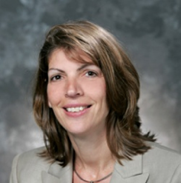
Lisa B. Callahan
Vice President and General Manager, Commercial Civil Space
Lockheed Martin Space
Lisa B. Callahan is Vice President and General Manager of the Commercial Civil Space line of business for Lockheed Martin Space. In this role, she is responsible for all aspects of execution and growth for Commercial and Civil markets in human and robotic deep space exploration, communications and weather and remote sensing. Ms. Callahan is also responsible for Michoud Operations and related activity at Stennis Space Center.
In her previous role as Vice President of Corporate Internal Audit of Lockheed Martin Corporation – reporting directly to the Lockheed Martin Audit Committee of the Board of Directors – Ms. Callahan provided independent, objective assurance and advisory activity to improve the Corporation’s operations. Under her leadership, Corporate Internal Audit determined the adequacy and effectiveness of the Corporation’s network of risk management, internal control, and governance processes as designed and represented by management.
Her prior leadership roles also include Vice President and General Manager of the Mission Systems & Training Undersea Systems line of business for Lockheed Martin Corporation, Vice President of Lockheed Martin Corporation’s Maritime Ballistic Missile Defense Program, and Program Director for Lockheed Martin’s Simulation Training and Support business.
Ms. Callahan graduated from Virginia Polytechnic Institute and State University with a Bachelor of Science in Electrical Engineering. Currently, she is a member of the Dean of Engineering Advisory Board.
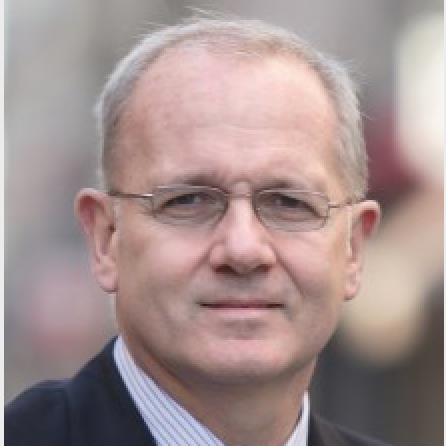
Jean-Yves Le Gall
President
International Astronautical Federation (IAF)
Jean-Yves Le Gall is President of the Centre National d’Etudes Spatiales (CNES), the French space agency, since 2013. In this capacity, he is Interministerial Coordinator for satellite navigation programmes and Chair of the Administrative Board of GSA, the European GNSS Agency. He is also Co-Chair of the Council of the European Space Agency (ESA) and President of the International Astronautical Federation (IAF).
CNES is responsible for proposing and implementing space policy in France. It is involved in all aspects of space (Ariane, Sciences, Observation, Telecommunications, Defence) through its four centres of excellence in Paris, Toulouse and French Guiana, with 2,450 employees and a budget of more than €2.3m (2017). CNES also represents France on the ESA Council and at many other international organizations, and is a partner in various commercial enterprises.
Born in 1959, Jean-Yves Le Gall is a qualified engineer and scientist who has devoted his entire career to the European space programme, holding positions within the French national scientific research agency CNRS, several French ministries, at Novespace and a first stint with CNES before joining Starsem and Arianespace for 12 years, where he was CEO then Chairman & CEO.
Jean-Yves Le Gall is a member of the International Academy of Astronautics (IAA) and Vice-President of the “Space Circle” at French think-tank CEPS (Centre d’Etude et de Prospective Stratégique). He also chairs the France-Japan business council of Medef International, and is a member of the French-Mexican Strategic Council.
He received the Astronautics Prize from the French Association of Aeronautics and Astronautics (AAAF) in 2001. He was named Via Satellite magazine’s 2005 Satellite Executive of the Year and received the Lifetime Achievement Award in 2007 from the Asia-Pacific Satellite Communications Council (APSCC). In 2011 he was inducted into the Hall of Fame of the Society of Satellite Professionals International (SPPI) and received the Icarus Prize from the French association of professional aerospace journalists (AJPAE). In 2014 he received a Laureate Award from Aviation Week & Space Technology magazine.
Jean-Yves Le Gall holds the rank of Officer in both the Legion of Honour and the National Order of Merit in France. He has also been awarded the Order of Friendship by the Russian Federation and the Order of the Rising Sun, Gold and Silver Star, by the government of Japan.
Guest Speakers
Moderators’ Workshop Speaker
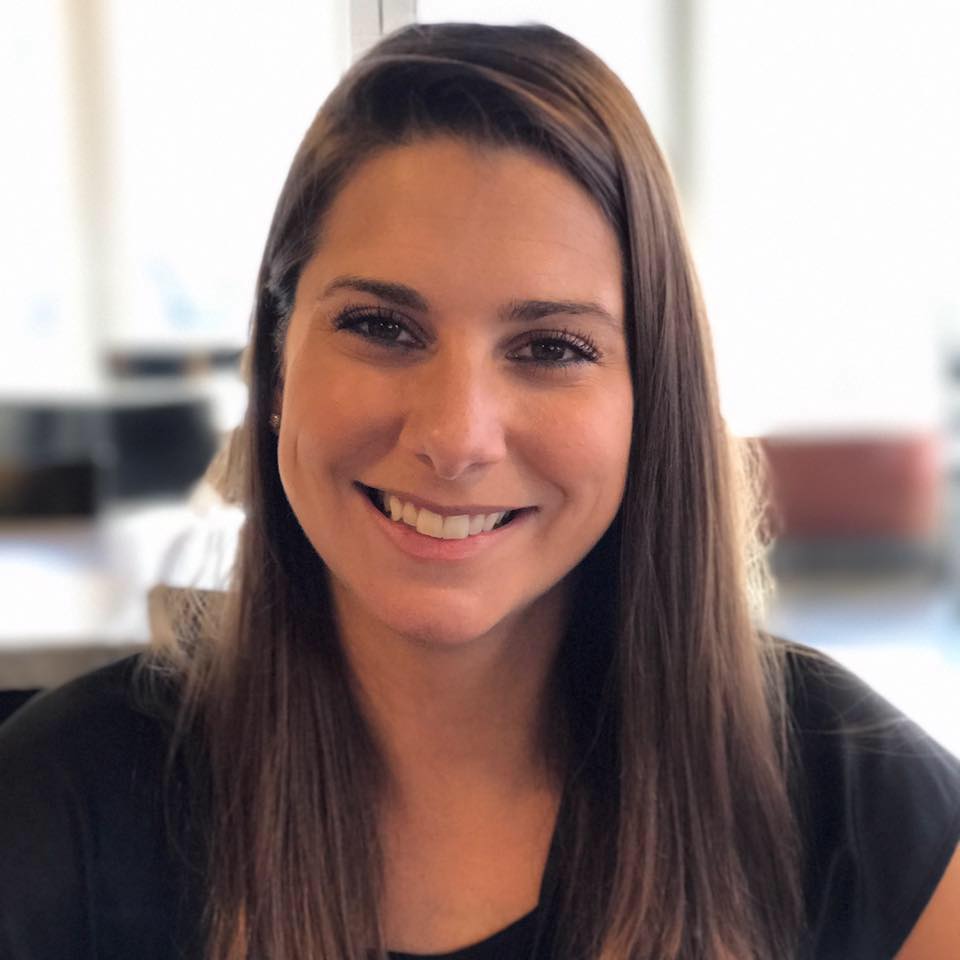
Nicole Herrmann
Integration Manager for the Advanced Exploration Systems Division in the Human Exploration and Operations Mission Directorate
NASA Headquarters
Nicole Herrmann began at NASA Headquarters as an intern in the History Division and has had various roles supporting future human exploration over the last 10+ years. Nicole is currently the Integration Manager for the Advanced Exploration Systems Division in the Human Exploration and Operations Mission Directorate at NASA Headquarters. In this role, Nicole supports strategic planning and coordination for the portfolio of programs focused on human lunar exploration including the Gateway Program, the Human Landing System Program, and associated risk reduction activities.
Nicole graduated from the University of Maryland in College Park receiving a Bachelor of Arts in History and a minor in Astronomy. She completed graduate studies at the George Washington University receiving a Master of Arts in International Science and Technology Policy with a focus on Space Policy as well as a Master of Science in Systems Engineering, also from the George Washington University.
Have Space Suit Will Travel
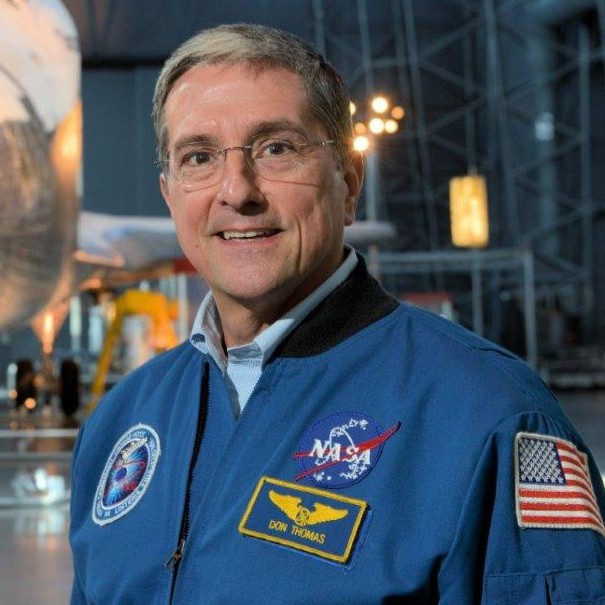
Don Thomas
Astronaut, scientist, professional speaker, educator, and author
Dr. Thomas was born in Cleveland, Ohio and received his B.S. in physics from Case Western Reserve University. He then attended Cornell University where he received his master and doctorate degrees in materials engineering. From 1982-1987 he was a senior member of the technical staff at Bell Laboratories in Princeton, New Jersey, where he was awarded two patents for inventions related to the packaging of semiconductor devices He then joined the NASA Johnson Space Center in Houston, Texas as a materials engineer for the space shuttle program. In 1990 Dr. Thomas was selected in NASA’s 13th group of astronauts and flew as a mission specialist on four space shuttle missions: STS-65, STS-70, STS-83, and STS-94. During these four missions, he performed hundreds of microgravity sciences experiments and helped deploy a large communications satellite from the space shuttle. He has spent 44 days in space and has completed 692 orbits of the Earth.
From 1999-2000 Dr. Thomas was the NASA director of operations at the Gagarin Cosmonaut Training Center in Star City, Russia, where he coordinated the training of NASA astronauts for missions aboard the International Space Station. From 2003-2006 Dr. Thomas was the International Space Station Program Scientist and was responsible for the selection and scheduling of experiments to be performed aboard the ISS.
From 2007-2015 Dr. Thomas headed up the Hackerman Academy of Mathematics and Science at Towson University, a STEM outreach initiative that targeted elementary, middle, and high school students to encourage them to pursue careers in math, science, and engineering. Today he is a professional speaker and continues his outreach efforts inspiring students to reach for the stars. He is the 2018 recipient of the Frank G. Brewer Trophy from the National Aeronautic Association in recognition of his outstanding work in STEM education across the United States and around the world.


